Liberty
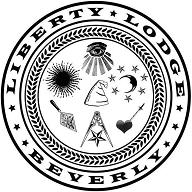
Contents
- 1 LIBERTY LODGE
- 2 REFERENCES IN GRAND LODGE PROCEEDINGS
- 2.1 ANNIVERSARIES
- 2.2 VISITS BY GRAND MASTER
- 2.3 BY-LAW CHANGES
- 2.4 HISTORY
- 2.5 OTHER
- 2.6 EVENTS
- 2.6.1 OFFICER LIST, JANUARY 1826
- 2.6.2 OFFICER LIST, JANUARY 1827
- 2.6.3 OFFICER LIST, JANUARY 1831
- 2.6.4 INSTALLATION OF OFFICERS, JANUARY 1864
- 2.6.5 CORNER STONE LAYING, AUGUST 1867
- 2.6.6 WASHINGTON'S BIRTHDAY, FEBRUARY 1890
- 2.6.7 WASHINGTON'S BIRTHDAY, FEBRUARY 1891
- 2.6.8 GRAND MASTER AND PRESIDENT TAFT VISIT, SEPTEMBER 1912
- 2.7 GRAND LODGE OFFICERS
- 2.8 OTHER BROTHERS
- 2.9 DISTRICTS
- 2.10 LINKS
LIBERTY LODGE
Location: Beverly
Chartered By: John Abbot
Charter Date: 06/19/1824 III-484
Precedence Date: 06/19/1824
Current Status: Active
PAST MASTERS
- Jesse Sheldon, 1824-1826, 1830, 1831 ©
- Samuel D. Turner, 1827-1829, 1833, 1839
- Benjamin Pierce, 1832 ©
- Jonathan Towne, 1834
- Amos Sheldon, 1835
- John Bell, 1845
- Thomas Remmonds, 1846-1849
- John B. Hill, 1850-1860, 1863; © SN
- S. Lothrop Thorndike, 1861, 1862; ©
- David S. Shattuck, 1864-68
- Hervey Lunt, 1869-71; ©
- Samuel A. Endicott, 1872; ©
- Isaac H. Edgett, 1873-1875, 1878, 1881; ©
- Charles Woodberry, 1876, 1877; ©
- William R. Driver, 1879; ©
- George E. Norris, 1880
- Charles W. Marshall, 1882, 1883
- Albert A. May, 1884, 1885; ©
- Augustus Stevens, 1886; ©
- John F. Hill, 1887-1889; ©
- George A. Galloupe, 1890, 1891; ©
- Fred C. Dodge, 1892, 1893; ©
- John W. Carter, 1894, 1895; ©
- Stephen W. Abbott, 1896, 1897
- Charles Greenough, 1898-99; ©
- Luther S. Herrick, 1900, 1901; © SN
- William A. Lee, 1902, 1903
- William R. Brooks, 1904, 1905; ©
- Walter H. Smith, 1906, 1907; ©; Mem
- William Galloupe, 1908
- Frank S. Cleaves, 1909, 1910; ©
- John H. Harris, 1911, 1912; ©
- William H. Parker, 1913, 1914; © SN
- Harland E. Cate, 1915, 1916; ©
- Howard K. Preston, 1917
- Hollis L. Cameron, 1918; ©
- H. Franklin Murray, 1919, 1920; ©
- Harold C. Childs, 1921
- Harry M. Grout, 1922
- George A. Sinnicks, 1923; © N
- William H. Black, 1924; ©
- Jesse A. Dutelle, 1925; ©
- Clarence Edwards, 1926; ©
- Charles H. Barter, 1927; ©
- Edmund G. Haskell, 1928; © N
- William E. Alcock, 1929; ©
- Alexander Black, 1930; ©
- Carl E. Herrick, 1931; ©
- Russell C. Tirrell, 1932; © N
- Winthrop P. Porter, 1933; ©
- Harry C. Smith, 1934; ©
- John D. Martyn, 1935; ©
- John A. Miller, 1936; ©
- Richard Winchester, 1937; ©
- Fred E. Sherman, 1938; ©
- John B. Hill, 1939; ©
- Ernest L. Newhall, 1940; ©
- Alexander W. D. Black, 1941; © Mem
- George W. Jeffs, 1942, 1943
- Clarence L. Brierley, 1944
- William L. Moody, 1945
- W. Kimball Hayes, Jr., 1946, 1947
- Joseph E. White, 1948, 1949; ©
- W. Whitney Lundgren, Jr., 1950; ©
- Robert W. Ireland, 1951; ©
- Ellis M. Purinton, 1952; © Mem
- George H. Gray, 1953; ©
- Edward H. Ober, 1954; ©
- George R. Spear, 1955; ©
- Samuel E. Tappan, 1956; ©
- Robert O. Lunn, 1957; ©
- Frederick W. Allen, 1958; © SN
- Albert G. Patard, 1959; ©
- Lawrence H. Carlson, 1960; ©
- Gilbert A. Prescott, 1961; ©
- David L. Twiss, 1962; ©
- James R. Maguire, 1963; ©
- Douglas S. Littlehale, 1964; ©
- Albert H. Nash, 1965; ©
- Albert C. Phillips, 1966; ©
- Paul W. Lunn, 1967, 1985; ©
- Rodney W. Preston, 1968; © N
- Owen H. Curtis, 1969; ©
- Kenneth C. Pendleton, 1970; ©
- George E. Manson 1971, 1998-2000; ©
- Bryant B. Besse, 1972; ©
- J. Gregory A. Hill, 1973; © N
- Donald S. Kenney, 1974, 1978; ©
- Alan B. Ayers, 1975; N
- Daniel W. Hall, 1976
- Walter L. Sargent, 1977
- Robert S. Randall, 1979; Mem
- Thomas S. Meldrum, 1980, 1986
- Charles M. Lewis, 1981
- Richard B. Boucher, 1982
- Todd R. Sargent, 1983
- Theodore L. Scott, 1984
- David M. Petto 1987, 2001
- Clarence N. Trepanier, 1988
- George K. Haile, 1989, 1995-1997, 2002-2007
- Mark Meldrum, 1990
- John H. Lyman, 1991
- Carl F. Kersting, 1992
- Thomas J. Ferguson 1993, 1994
- Thomas C. Pawlyk, 2008
- John J. Maihos, 2009; PDDGM
- Robert A. Monahan 2010-11
- K. Michael Bent, 2012
PICTURES FROM THE 1974 HISTORY
The following pictures appear in the 150th Anniversary History of the Lodge published in 1974. Past Masters with pictures below are marked with a © above. (As more pictures are available, they can be added here.)
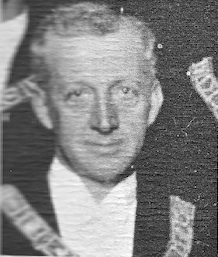
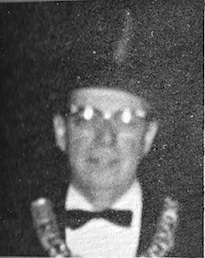
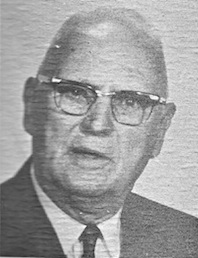
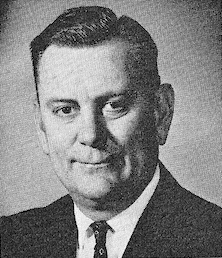
William Alcock, Frederick Allen, Charles Barter, Bryant Besse
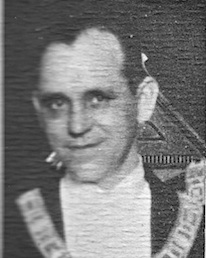
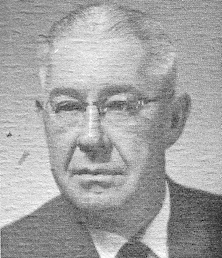
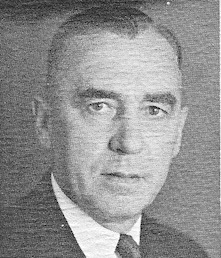

Alexander Black, Alexander W.D. Black, William Black, William Brooks
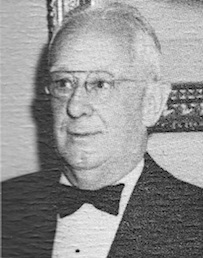
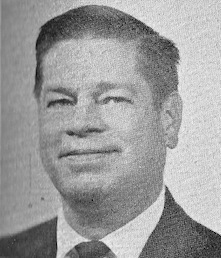
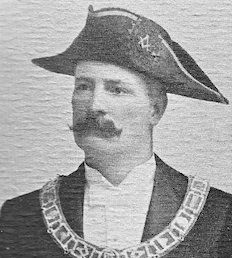

Hollis Cameron, Lawrence Carlson, John Carter, Harland Cate
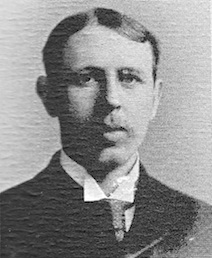
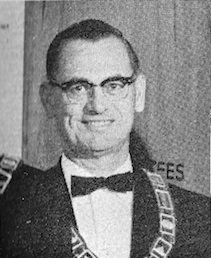
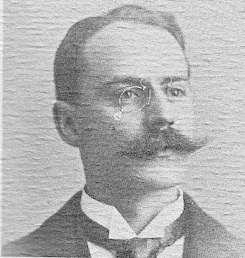
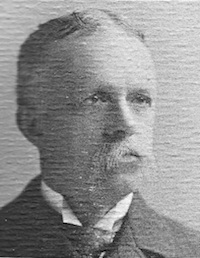
Frank Cleaves, Owen Curtis, Fred Dodge, William Driver
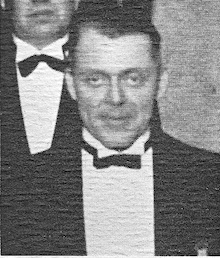
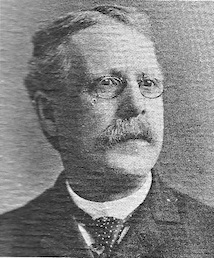
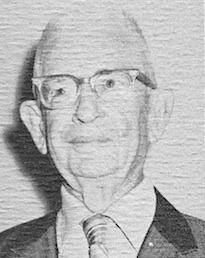

Jesse Dutelle, Isaac Edgett, Clarence Edwards, Samuel Endicott
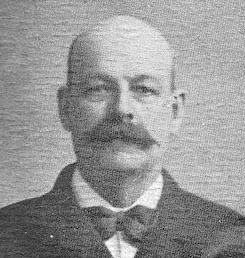
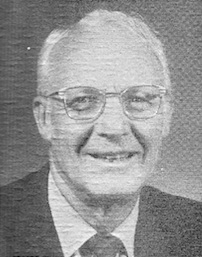
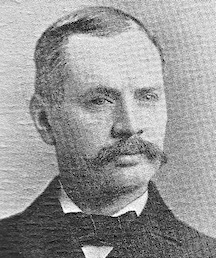
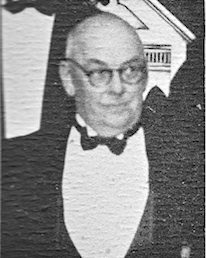
William Galloupe, George Gray, Charles Greenough, Harry Grout
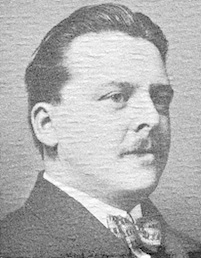

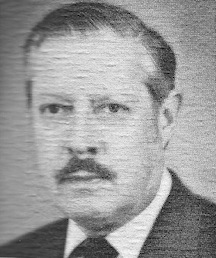

John Harris, Edwin Haskell, Kimball Hayes, Carl Herrick
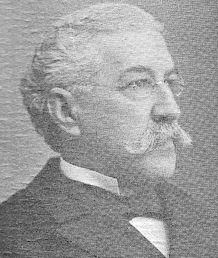
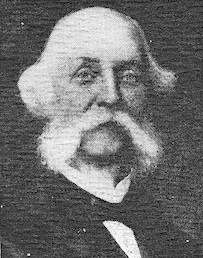
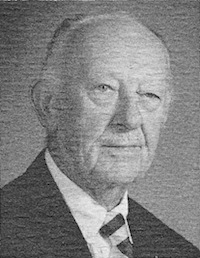
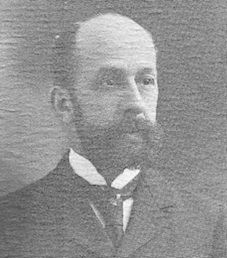
Luther Herrick, John B. Hill, John B. Hill (1939), John F. Hill
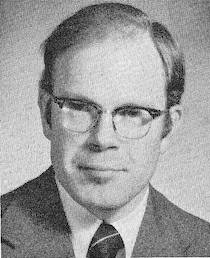
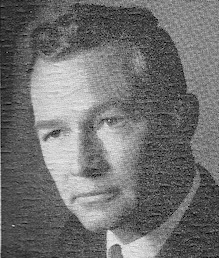
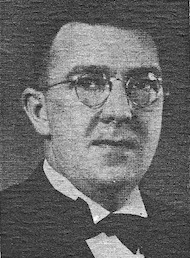

J. Gregory Hill, Robert Ireland, George Jeffs, Donald Kenney
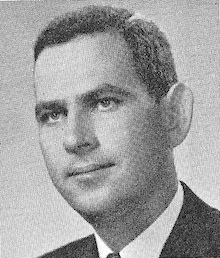
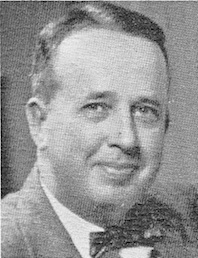
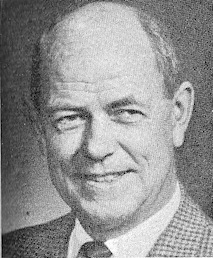
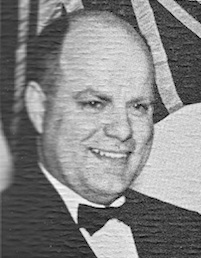
Douglas Littlehale, Whitney Lundgren, Paul Lunn, Robert Lunn
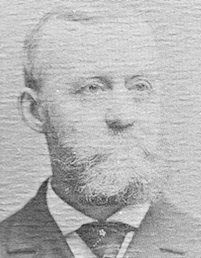
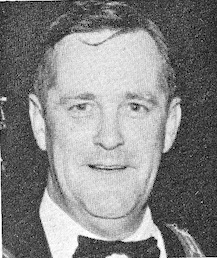
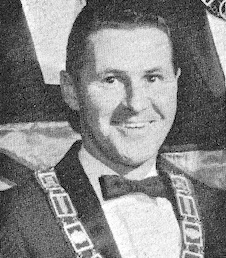
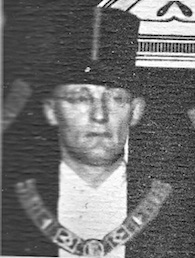
Hervey Lunt, James Maguire, George Manson, John Martyn


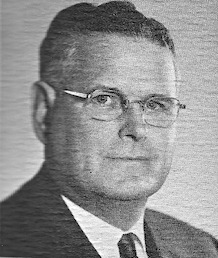
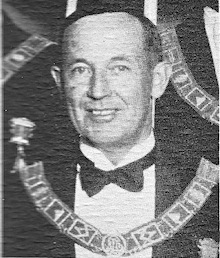
Albert May, John Miller, William Moody, Franklin Murray

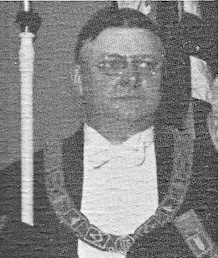
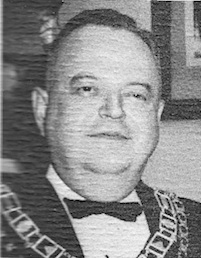
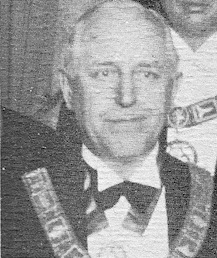
Albert Nash, Ernest Newhall, Edward Ober, William Parker
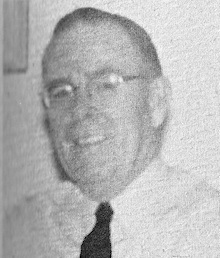
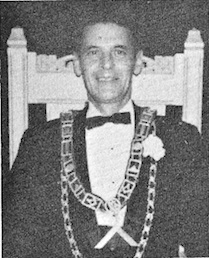
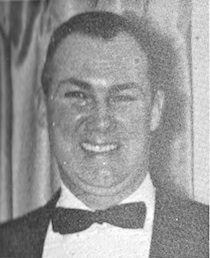

Albert Patard, Kenneth Pendleton, Albert Phillips, Benjamin Pierce
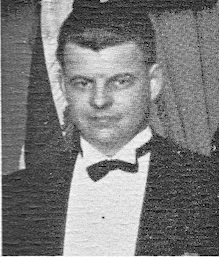
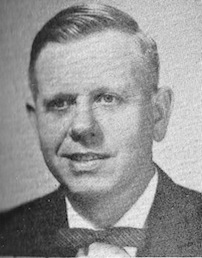
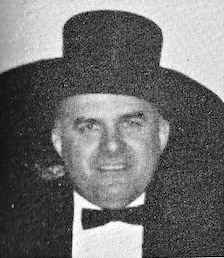 ,
,
Winthrop Porter, Gilbert Prescott, Rodney Preston, Ellis Purinton

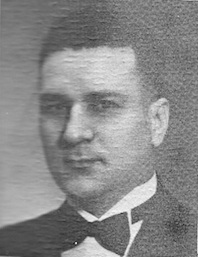
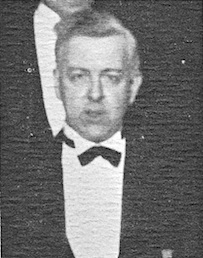
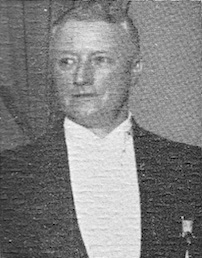
Jesse Sheldon, Fred Sherman, George Sinnicks, Harry Smith
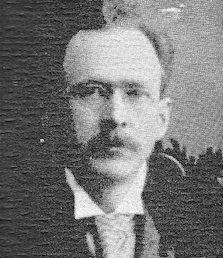
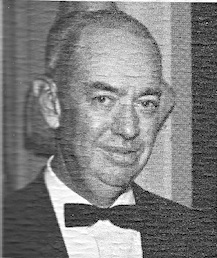
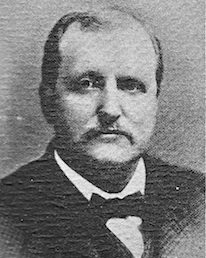
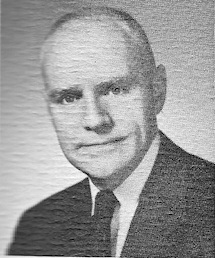
Walter Smith, George Spear, Augustus Stevens, Samuel Tappan
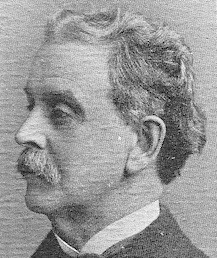
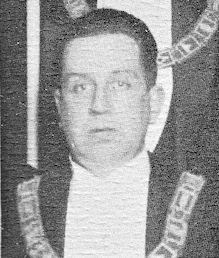
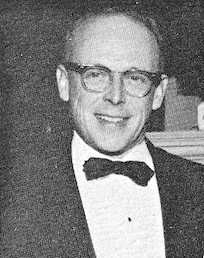

S. Lothrop Thorndike, Russell Tirrell, David Twiss, Richard Winchester
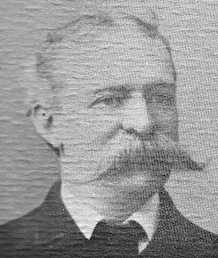
Charles Woodberry
REFERENCES IN GRAND LODGE PROCEEDINGS
- Petition for Charter: 1824
- Constitution of Lodge: 1824 (by Rt. Wor. Joseph G. Sprague, District Deputy Grand Master)
ANNIVERSARIES
VISITS BY GRAND MASTER
- 1867 (Dame; Corner stone laying; not in Proceedings; see below)
- 1868 (Dame; Dedication of hall and installation)
- 1882 (Lawrence; 2 visits)
- 1883 (Lawrence)
- 1891 (Wells; Washington's Birthday)
- 1900 (Gallagher)
- 1905 (Sanford; commemoration of the birth of George Washington; Earl of Londsborough present)
- 1906 (Blake)
- 1908 (Blake; Annual Festival)
- 1910 (Flanders; Washington's Birthday)
- 1911 (Flanders; Washington's Birthday)
- 1912 (Benton; President Taft in attendance; see below)
- 1916 (M. Johnson)
- 1918 (L. Abbott; Washington's Birthday)
- 1924 (Ferrell; Centenary; Special Communication)
- 1929 (By Junior Grand Warden Harry P. Jackson; Washington's Birthday)
- 1930 (By Senior Grand Warden George R. Winsor; Washington's Birthday)
- 1945 (Wragg; Washington's Birthday)
- 1949 (Keith; 125th Anniversary; Special Communication)
- 1953 (Roy; 2 visits: Washington's Birthday and reception for Junior Grand Warden Edmund G. Haskell)
- 1953 (W. Johnson; 2 visits: Washington's Birthday and visit by Washington-Alexandria Lodge #22)
- 1956 (W. Johnson; Hall dedication; Special Communication)
- 1974 (Vose; 150th Anniversary; Special Communication)
- 1976 (Maxwell)
- 1987 (Ames; Washington's Birthday)
- 1998 (A. Johnson)
BY-LAW CHANGES
1870 1871 1873 1879 1883 1884 1885 1892 1895 1898 1905 1906 1912 1913 1914 1917 1918 1919 1921 1923 1925 1927 1928 1931 1937 1945 1948 1949 1950 1951 1953 1970 1973 1975 1977 1978 1984 2006 2009 2011
HISTORY
- 1924 (History of Masonry in Beverly, 1779-1824, 1924-196; see below)
- 1949 (125th Anniversary History, 1949-117; see below)
- 1974 (150th Anniversary History 1924-1974, 1974-84; see below) Note: an anniversary volume was prepared for this anniversary; pictures from this book appear above.
HISTORY OF FREEMASONRY IN BEVERLY 1779-1924, JUNE 1924
From Proceedings, Page 1924-196:
By Wor. Eugene J. V. Huiginn, Amity Lodge.
St. John's Grand Lodge of Boston was established April 30, 1733, when Henry Price, of Boston, was appointed Provincial Grand Master by Viscount Montague, Grand Master of Free and Accepted Masons of England. This was known as the Modern Grand Lodge.
The Massachusetts Grand Lodge was constituted May 30, 1769, when Dr. Joseph Warren was appointed Grand Master in Boston and within one hundred miles of the same, by the Earl of Dalhouiie, Grand Master of Scotland. This was known as the Ancient Grand Lodge.
On March 8, 1777, the Massachusetts Grand Lodge avowed itself an independent Grand Lodge.
On Dec. 6, 1782, the Massachusetts Grand Lodge explained and reaffirmed its independence as a Grand Lodge. On March 5, 1792, St. John's Grand Lodge and the Massachusetts Grand Lodge united in one Grand Lodge. John Cutler was first Grand Master of the United Grand Lodge.
It was under the Massachusetts Grand Lodge that Amity, United States, Unity, Essex, and St. Peter's were constituted.
UNITED STATES LODGE, DANVERS
On May 1, 1778, a petition was presented to the Massachusetts Grand Lodge of Masons in Boston by Brother John Piemont, and others, asking for a Charter to erect a Lodge in Danvers to be known as United States Lodge. The petition was granted.
On December 4, 1778, R. W. Brother John Piemont presented, in Grand Lodge, a list of the officers of United States Lodge of Danvers as of record October 6, 1778: John Piemont, Master. John Stacey, Senior Warden. Amos Putnam, Junior Warden. Enoch Putnam, Treasurer. Andrew Putnam, Secretary. Nath. Gott, Senior Deacon. Nathaniel Greenwood, Junior Deacon. Matthew Fairfield, Steward. Joseph Knowlton, Steward. James Carter, of St. Andrew's Lodge, Boston, as Proxy.
On March 5, 1779, George Abbott and others, of Salem, applied to the Grand Lodge for a Charter. This was at the meeting of the Grand Lodge on that date. At a meeting of the Grand Lodge on March 9, 1779, the petition of George Abbott and others, of Salem, was granted, and Essex Lodge came into being.
On the first day of April, 1779, the Brethren (of the Essex Lodge, Salem) were notified to meet at the house of Bro. John Butler, to act on business of importance. Being met together to the above notice, the following communication was laid before them:
We, the Committee of the United States Lodge of Danvers, thinking it unnecessary for two Lodges, so near together as Salem and Danvers, and being assured it will be highly detrimental to the Craft, are willing to become one body, and unite with our Brethren in Salem, it being the most convenient place to hold a Lodge. We, therefore, propose the following for your consideration, viz.:
- First: That the United States Lodge and Charter be removed to Salem, there to form into one body under that title.
- Second: For the whole community to be on a level with each other, and to make an entire new choice of officers.
To the Brethren of the Fraternity of Salem
From, Gentlemen, your humble Servants and affectionate Brothers,
(Signed)
John Stacey
Francis Yates
Richard Skidmore
Joseph Wyer
Joseph Knowlton.
The Salem Lodge declined to accede to the request of the above committee of five, purporting to be "the Committee of the United States Lodge of Danvers."
One must notice the prominence of John Stacey in the Danvers Lodge, in the petition to the Essex Lodge, and in relation to Amity Lodge. Who was he? Massey, in his History of Freemasonry in Danvers, page 21, says Stacey was a Danvers man, and in the list of Beverly residents belonging to United States Lodge on page 16 in Massey's History Stacey is given. There is not, then, absolute certainty as to his home. It would be easy to surmise many things. He was in United States Lodge; he wanted to have its Charter returned and a Lodge for the "community" formed in Salem; he wanted the Essex Lodge to give up the Charter gained for them by the special aid of the Grand Master; he wanted United States Lodge moved to Beverly, and in the end he got a Lodge formed in Beverly, and became its first Master. What a busybody! Or was it conceit, or ambition? Is he the one referred to in the records regarding Essex Lodge, which records state that, in the Grand Lodge, the Salem men found great opposition from "a person from Danvers"?
And today nobody knows who he was; no one knows for certain where he lived. What a commentary!
The petition from Danvers for erection of United States Lodge was presented in Grand Lodge May 1, 1778. The petition was granted the same day. The petition for Essex was presented March 5, 1779, and granted March 9, 1779. The petition for Amity was presented September 3, 1779, and granted the same day.
At a meeting of the Grand Lodge "upon emergency," April 13, 1779 . . . the petition of Nathaniel Greenwood, Francis Yates, and Joseph Wyer, in behalf of United States Lodge, setting forth the disadvantage of holding their Lodge at Danvers and praying it might be removed to the town of Beverly, was read.
The Grand Lodge agreed "Unanimously to grant the prayer of their petition, and the said United States Lodge is in future to be held in the said Town of Beverly and all their proceedings there to be firm and valid, to all purposes and intents, as though the name of Danvers had not been mentioned in their charter of erection."
On April 27, 1779, nine members of United States Lodge signed a petition to the Massachusetts Grand Lodge protesting against the removal of the Charter and Lodge to Beverly.
On April 30, 1779, the Grand Lodge met on special occasion:
Motioned and Seconded— That the vote respecting the United States Lodge: at the last Grand Lodge Night; be Suspended, by Reason of a petition being Presented,
Read & debated at the Grand Lodge dated 27th Instant, Signed by Nine Members of that Lodge against a removal to Beverly.
Motioned, Seconded & Voted
That the two Petitions presented from the Members & Committee of the United States Lodge, to this Grand Lodge, Respecting their Removal to Beverly — be coppied & sent by the Grand Secretary to the Master of that Lodge, that he be desired to Call his Lodge together immediately, and know the Minds of the Members, (Consistent with the By Laws) Respecting a Removal of it—and that they transmit to the Grand Lodge a Copy of their proceedings & the result of their determinations, to be further acted upon.
At a meeting of the Grand Lodge, Held at Masons Hall, on Special Occasion, Friday Evening May 21st, 1770. The following Members from the United States Lodge being admitted into the Grand Lodge, "Vizt.
- Bror. Nath. Greenwood
- Francs Yates
- Joseph Wyer
- Amos Putnam
- Nathl Gott
- Enoch Putnam
Having by writing Repotted the determination of their Lodge at their last meeting; and answer'd to Several pointed Questions Made by this Grand Lodge particularly to the Constitution, Page 314. They withdrew.
The Grand Lodge then Came into the following Resolve:
The Petitioners having been heard (this Evening) It fully Appeard to the Grand Lodge; that there were more than Five Members, who, are willing to Support said Lodge. It is therefore the Unanimous Opinion of this Grand Lodge, that no Lodge may be Removed to any other Town, So long as Five Members Continue to Support it. We Therefore Recommend to the Members of Said Lodge they Cultivate Brotherly Love, and Friendship — the Cement of Masonry— that the Vulgar may not take the Advantage of any little difficulty that (may) Arise Among Masons, to bring the Craft into disrepute.
Voted the G. Secry furnish the United States Lodge, by their Committee — with a.fair Copy of this Resolve.
This is a list of the members of United States Lodge, Danvers, 1779— Bros.
- John Piemont
- John Stacey
- Amos Putnam
- Enoch Putnam
- Math. Fairfield
- Nath. Gott
- Jethro Putnam
- Moses Titcomb
- Joseph Knowlton
- Francis Yates
- Richard Skidmore
- Eben'r Andrew
- Jacob Oliver
- Samuel Page
- Benj. Hammond
- Andrew Putnam
- Bro. Quartermass
- Joseph Wyer
- Francis Porter
- Nath. Greenwood
Nine of the above were opposed to the removal of the Lodge to Beverly. Seven of above favored removal to Beverly. Four, who belonged in Danvers, were absent at sea and in the Continental Army.
The members living in Beverly were reported as follows:
- Nathaniel Greenwood, M.
- Joseph Yates, M.
- Joseph Wyer, M.
- Jones
- Frances
- Grovy
- Edmands
- Ellingwood
- Baker
- Spofford
- Quartermass, M.
- John Stacey, M.
- Griswold, M.
- Frances
- Grovy
- Ober
- Lovett
- Whipple
- Coboott
- Coboott
There evidently was a disturbing influence in the United States Lodge, as the Proceedings of the Grand Lodge prove.
AMITY LODGE, BEVERLY
We now come to Amity Lodge, Beverly.
On page 277 of the "Proceedings in Masonry of the Massachusetts Grand Lodge" is this statement:
A Petition of Wm. Grovy and others from the Town of Beverly praying for a Charter of Erection for holding a Lodge in said Town by the name of Amity.
Voted, the prayer be Granted.
The meeting of the Grand Lodge, granting the prayer of Grovy and others, was held at Free-Mason Hall, Boston, Friday evening, September 3, 1779, the third Quarterly Communication.
The following is a copy of original return from Amity Lodge in the archives of Massachusetts Grand Lodge: Beverly, September 6, 1779. At a meeting of the Brethren of Amity Lodge, being duly notified to meet and make choice of the following officers for S'd Lodge:
- Bro. John Stacey, Master
- Bro. Nath. Greenwood, Sen. Warden
- Bro. Francis Yates, Jun. Warden
- Bro. Isaac Spofford, Treasurer
- Bro. Wm. Leach, Secretary
The following is the list of names of members of Amity Lodge for 1780 from Grand Lodge archives:
- Jno. Stacey, Master
- Nathl. Greenwood, Senior Warden
- Francis Yates, Junior Warden
- Isaac Spofford, Treasurer
- William Leach, Secretary
- Jno. Burke, Senior Deacon
- Jno. Edmonds, Junior Deacon
- Simeon Brown, Steward
- Daniel Friend, Steward
- Richd. Quartermas
- Joseph Wyer
- William Groves
- Jno. Ashton
- Benj. Ellingwood
- Benj. Lovett
- Hugh Hill
- Will'm Ramsdell
- Henry Herrick, Jr.
- Sewell Tuck
The following list from Grand Lodge archives "of those that have been made," endorsed May 16, 1780:
- Hale Hilton
- Jno. Orne
- Rich'd Page
- Hubbard Woodberry
- Sewell Tuck
- Jno. Green
- Henry Phelps
- Rich'd Dodge
The following is list of "officers elected for the Amity Lodge, the year ensuing:
- Bro. Henry Herrick, Master
- Bro. John Dodge, Senior Warden
- Bro. John Francis, Junior Warden
- Bro. Isaac Spofford, Treasurer
- Bro. Joseph Wyer, Senior Deacon
- Bro. William Ramsdell, Junior Deacon
- Bro. Sewell Tuck, Steward
- Bro. Benj. Ellingwood, Steward
(Signed) Simeon Brown, Sect. Beverly, 19 Dec, A. L. 5780
A true list.
Attest: Henry Herrick, M.
Amity Lodge was Constituted November 7, 1782 by R.W. William Greenough, of Newburyport, acting as Grand Master.
Essex Lodge, Salem, on St. John's Day, December 27, 1780, had the Brethren of Philanthropic Lodge, Marble-head, Amity Lodge, Beverly, and United States, Danvers, as their guests. They attended service in St. Peter's Church, and dined at Capt. Goodhue's Tavern. "After dinner a number of Public toasts were drank, attended with music." In 1781, the Beverly, Danvers, and Ipswich Lodges were again the guests of Essex Lodge on December 27; they attended service in St. Peter's Church, had dinner and a concert in the evening.
List of members of Amity Lodge, compiled from all sources available.
- Adams, Daniel
- Ashton, John
- Baker, Simeon
- Brown, Simeon
- Burke, John
- Cobatt or Coboott (Andrew Cabot), Com. of Safety, owner of privateers. Cobatt or Coboott (John Cabot),
owner of privateers.
- Dodge, John
- Dodge, Richard
- Edmonds, Jno.
- Edmonds, Jonathan
- Ellingwood, Benjamin
- Francis, John
- Francis, Aaron
- Friend, Daniel
- Green, John
- Greenwood, Nathaniel
- Griswold, --
- Groves, ichabod
- Groves, William
- Herrick, Henry, Jr.
- Hill, Hugh
- Hilton, Hale
- Jones, Benjamin
- Knowlton, Joseph
- Leach, William
- Lovett, Benjamin
- Ober, Israel
- Oliver, Jacob
- Orne, Jno.
- Page, Richard
- Phelps, Henry
- Porter, William
- Quartermas, Richard
- Ramsdell, William
- Spofford, Isaac
- Stacey, John
- Tuck, Sewell
- Whipple, --
- Woodbury, Hubbard
- Wyer, Joseph
- Yates, Francis
At least eighteen of these men were captains or officers of privateers and other American vessels during the war, and seventeen were in the army as officers; all the others were closely associated with these patriots.
Captain William Burley, a noted resident of Beverly in his time, was, according to the statements of some of the older members of Liberty Lodge, a member of the Craft in Beverly in the Revolutionary times. Whether he was a member of Amity Lodge, or visited it, we cannot prove or disprove from official documents. Captain Burley was with Washington at White Plains, N. Y., and was in service at several other places. He was a benefactor of the public schools of Beverly. He was the father of Mr. Edward Burley, who lived in the present Historical Society House in Beverly, and willed that building and a sum of money to the Historical Society.
Dr. Joshua Fisher was the first Secretary of Unity Lodge, Ipswich. In the returns of the Ipswich Lodge to the Grand Lodge on September 3, 1779 (the same day on which Amity received its Charter), Dr. Fisher is recorded as Secretary of Unity. The Ipswich Lodge was chartered March 9, 1779. Dr. Fisher was surgeon on a Marblehead privateer during the war. Later he removed to Beverly. He, with other Beverly men, signed the Masonic Protest or Declaration of 1831. He died in 1833. Whether he affiliated with Amity Lodge or not we cannot at this time prove or disprove, but it seems more than likely that he sat in Amity Lodge as well as in Liberty Lodge.
The Rev. Enos Hitchcock, pastor of the North Beverly Church, was a member of the Craft. He was a chaplain in the Revolutionary Army. It has been stated that he sat in Lodge with General Washington. He was absent from Beverly in 1779 and 1780. He resigned the pastorate in 1780. It is possible that he sat in Amity Lodge. The records of the Lodge are most incomplete. We have only bits of information for 1779 and 1780 and 1781; the rest of the records, if ever there were any, were destroyed by fire in some of the losses the Grand Lodge at times sustained by fire or are — if still in existence — inaccessible to us. It would not be surprising if in days to come other records should be discovered.
There were without question many other members of the Craft in Beverly during the Revolutionary times, and it is likely that some of them were "made" in Amity Lodge, and became members of the Lodge, while others "made" elsewhere became members of Amity. It must be remembered that many men who were made Masons did not have an opportunity to sign the by-laws, either because they were absent when elected members or because, as often happened, the Secretary did not have the book of by-laws in the Lodge-room, or for some other reason. Amity Lodge, being composed almost altogether of army officers and sea-captains, it is easily seen that the Lodge meetings would not have many in attendance, and as this condition continued for some years, and members of the Lodge died or moved away, the Charter was at last surrendered in 1789.
Before closing it may be worth mentioning that Bro. John I. Baker, in an address in Liberty Lodge on the occasion of the presentation of Et. Wor. Bro. John B. Hill's portrait, said that it was a tradition in Beverly that before the Revolution Francis Edward Yates, the first Junior Warden of Amity Lodge, had received the degrees of Freemasonry in England, and had been given authority, subject to certain limitations, to institute a Lodge, or Lodges, here. This cannot be true, for Brother Yates first came to this country as a prisoner in an armed privateer owned by Thorndike and Brown of Beverly; he was brought to Salem, and "enlarged." He went to Danvers, and married on February 22, 1777. He came to Beverly in 1778. So you see, he could not have been sent here by English Masons of either the Modern or the Ancient Line before the Revolution. The Moderns had a Provincial Grand Master here before the Revolution. The Scottish Grand Lodge had also a Provincial (Ancient) Grand Master here for Boston and within one hundred miles of Boston. Is it possible that the English Ancient Grand Lodge, established in 1751, and with its first Grand Master in 1753, would have sent a young man to establish the Jurisdiction of a third Grand Lodge in the vicinity of Boston? If so, there ought to be some proof of it besides the obscure hints conveyed in Bro. John I. Baker's address as reported in the records of Liberty Lodge. We know the Secretary of Liberty did not always get the speeches in accurate form. (Since this was written I have learned that Francis Edward Yates received the first degree in St. Andrew's Lodge, Boston, March 12, 1778 and the second degree April 1, 1778. As was not uncommon at that time, he seems never to have received the third. — E. J. V. H.)
In the records of Liberty Lodge it is stated that one of the Brethren in a speech said that there were at least three other members of the Fraternity from Beverly who, during the Revolutionary War, sat in the Washington (Travelling) War Lodge. These men were named Benjamin Shaw, an ensign, later lieutenant, and later adjutant to General Patterson; the second was a Captain John Green; the third was Doctor Elisha Whitney, who became a resident of Beverly before February, 1777. I do not feel justified in claiming them in any direct sense as members of Amity Lodge, nor of Liberty Lodge, if they were living when Liberty Lodge was formed.
In the vital records of Beverly, there is a record of a Benjamin Shaw, who married Jerusha Brown in 1756. There was also a Benjamin Shaw who married, for his second wife, Elizabeth Cashing, of Ipswich, at Hamilton in 1778. It is most probably the same man. There is no other Benjamin Shaw mentioned in the Beverly vital rec ords. In the "Proceeding's of the Grand Lodge of Massa chusetts," 1733-1792, there is a "Benja Shaw" mentioned as present at the Grand Lodge meeting on December 27, 1779, and also a "B. Shaw" at the Grand Lodge meeting on June 24, 1783. Is this he? The records shed no light on his relation to Beverly, nor is his death mentioned in any record I have seen.
There is a Captain John Green mentioned in the vital records of Beverly, who married Mrs. Lydia Page, of Danvers, in 1781. Perhaps this is the person alluded to by the speaker in Liberty Lodge. He was "made" a Mason in Amity Lodge.
Dr. Elisha Whitney died in Beverly in 1807, aged sixty years. This is, of course, the Dr. Whitney mentioned. We cannot find that Dr. Whitney was a Mason, but his son, Captain Elisha Whitney, of Beverly, who died in 1813, was raised in Essex Lodge January 3, 1804.
We are convinced, of course, that there were, besides those mentioned, other members of the Fraternity in Bev- erly in those days, but we have no proofs at present. There always will be a doubt about such matters in the absence of satisfactory documentary proofs. (I have prepared a brief personal record of every member of Amity Lodge from all sources known to me. This record I shall place in the keeping of the Grand Lodge of Massachusetts, together with all copies of Records, etc., used by me in the preparation of these histories of Amity and Liberty Lodges, Beverly. — E. J. V. H.)
LIBERTY LODGE, BEVERLY
The Charter of Liberty Lodge, A. F. & A. M., Beverly, Mass., is dated June 9, 1824, and is signed by the following officers of the Grand Lodge of Massachusetts:
- John Abbot, Grand Master
- Caleb Brown, Deputy Grand Master
- Samuel Thaxter, Senior Grand Warden
- John Keyes, Junior Grand Warden
and is attested by Thomas Power, Grand Secretary.
The Charter members of Liberty Lodge were:
- Amos Shelden
- John P. Webber
- Jesse Shelden
- Stephens Baker
- Benjamin S. Lunt
- Stephens Roundy, Jr.
- Andrew T. Leech
- George Brown
- William Gallop
- Benjamin Webber
- Samuel D. Turner
- Emery Norris
- Simeon Smith
Of these Charter members five were from Jordan Lodge, Danvers, two from Essex Lodge, Salem, and one each from Philanthropic, Marblehead, St. Mark's, Newburyport, St. Andrew's, Boston, Mount Lebanon, Boston, King Solomon's, Charlestown, and St. John's, Wilmington, N. C. (lt is interesting to note that as most of the founders of Amity Lodge came from a Danvers Lodge, so most of the founders of Liberty Lodge came from a Danvers Lodge.—E. J. V. H.)
These were the men who planned and secured the establishment of Liberty Lodge. We can almost see them meeting and hear them discuss what name to give the Lodge, what place of meeting can be secured, how to procure a Charter, the probable officers, the purchasing of regalia, the drawing up of by-laws, etc.
The first meeting of which we have record is on Monday, March 22, 1824. Of course, they must have had several meetings to discuss their plans before this semi-formal meeting on March 22, when they selected officers for the future Lodge, and selected one man for office who was not even an Entered Apprentice, Joseph Hill, the Tyler. On March 22 these several Brethren met and unanimously elected the following officers:
- Jesse Shelden, Master
- John P. Webber, Senior Warden
- Samuel D. Turner, Junior Warden
- Daniel Poor, Chaplain
- Amos Shelden, Treasurer
- Stephens Baker, Secretary
- Emery Norris, Senior Deacon
- Francis Lamson, Jr., Junior Deacon
- George Brown, Marshal
Simeon Smith and Benjamin S. Lunt were appointed Stewards, and Joseph Hill, not yet a Mason, Tyler.
Jesse Shelden, John P. Webber, and Samuel D. Turner were chosen as the Committee on Charity and Inquiry. Amos Shelden, George Brown, and John P. Webber were chosen as the Committee on Finance and Accounts.
The first meeting held after the date of the Charter was a special one on Tuesday, July 6, 1824. It was opened on the Entered Apprentice degree, and the petition of Joseph Hill to receive the degrees was presented. He was duly elected and received the first degree. The Lodge was then closed on the first and opened on the second degree, and Joseph Hill was elected to receive the second degree and received it forthwith.
At the first regular communication, held on July 8, 1824, a ballot was taken for Joseph Hill to receive the third degree. He was elected and Raised, and then elected to membership. At this meeting there were visitors present from Essex Lodge, of Salem, Philanthropic, of Marblehead, Jordan, of Danvers, and Columbian, of Boston. It may be of interest to note that Jesse Shelden, the "Worshipful Master, his brother, Amos, and Simeon Smith, and William Gallop — all Charter members—were fined for "not being in season."
It would not be worth while to write a history of the nearly two thousand communications of the Lodge and its routine work, nor would it be possible, even if advisable to write about the almost one thousand three hundred members who have signed the by-laws of the Lodge. The most we can do is to glean the prominent facts, and bring out the names of the outstanding members who in one way or another did noticeable service to the Fraternity or reflected some unusual credit on the Craft.
That the by-laws and social customs of the Lodge have changed in one hundred years is to be expected. It would serve no good purpose to try and follow up all these changes. They are on record in the archives of the Lodge, or in the Grand Lodge for all who wish particular information.
It will not be amiss to draw attention to the fact that every candidate had to be balloted for to receive each of the three degrees in succession, and a fourth ballot was taken as to his membership in the Lodge, making four ballots in all. This, of course, is all changed. The fees, too, have been changed from time to time.
At a regular meeting on August 5, 1824, two written amendments to the by-laws were handed in and moved by Bro. Stephens Baker, the Secretary, and seconded by the Worshipful Master, Jesse Shelden. One of these amendments was that the regular communications of the Lodge be held on the Monday on or preceding the full of the moon in each month. This was adopted by the Lodge at a regular communication held September 2, 1824. The other amendment was to abolish fines for absence or tardiness. This amendment was postponed sine die, but was almost unanimously adopted on January 23, 1826. A seal was ordered September 2, 1824.
At the regular communication on Monday, October 4, 1824, it was "Voted, that liquor shall be kept in the Lodge to be used only by order of the Master."
On December 6, 1824, the first annual election of officers took place in the Lodge-room. It was voted at this meeting that the Treasurer pay to the widow of Bro. Benjamin Webber, lately deceased, the ten dollars he had advanced at the foundation of the Lodge.
On Wednesday, December 15, 1824, at a special communication a Committee was appointed to arrange for the Consecration of the Lodge-room, and the installation of the officers.
The Consecration took place on Friday, December 24, 1824, at a special communication.
The Consecration was by the Grand Lodge. The prayers were offered by Bro. Rev. Ebenezer Poor. The singing was in charge of Mr. Isaac Flagg and his "quoir." The address described as an "excellent" and "eloquent" one, was given by Bro. the Rev. Henry W. Ducachet, D. D., Rector of St. Peter's Church, Salem. It is worth noting, perhaps, that in the choir was Mr. William Endicott, the centenarian, who built for his occupancy the large house on the corner of Broadway and Rantoul Streets (on the Gloucester side), a house still standing. The writer of this brief history had the great pleasure and honor of calling on Mr. Endicott in his latter days, and was present at his funeral.
After the ceremonies a generous "collation" was served in the rooms of Bro. Abraham Edwards' house on Edwards Street, Beverly. The Lodge-room was in the upper part of this house. There were two hundred and eighteen persons present. It was a public ceremony. The expense was met mostly by subscriptions.
There was in those days a Masonic Association of Essex County to which all the Lodges in the county were invited to belong. Liberty Lodge, on May 2, 1825, voted to join this association, and on April 17, 1826, voted to apply for membership.
It is of record that the Lodge, on invitation from the Grand Lodge, participated in the ceremonies attending the laying of the corner-stone of Bunker Hill Monument on June 17, 1826. The members of Liberty were to provide themselves with blue sashes.
The first visitation from a District Deputy Grand Master is recorded on October 16, 1825, when the Rev. John Bartlett, the District Deputy Grand Master for this District, visited Liberty Lodge and collected the Grand Lodge dues, amounting to $41. The regular visitations of the District Deputy Grand Master are noted in all the years the Lodge was active. For a number of years during a part of the period of the anti-Masonic excitement from 1833 to 1846 there was, of course, no visitation for the Lodge was quiescent during this period. Dr. Bartlett was pastor of the Unitarian Church in Marblehead, and was a warm friend and valued counselor of the Lodge.
For many years it was the custom for the Lodge to elect the first three officers, and these were to bring in a list of candidates for the other offices who were generally elected by the Lodge on the evening of, and immediately before, the installation. Sometimes the Lodge elected more than the first three officers.
The Lodge had a charge of $2 extra for a diploma, but eliminated this charge as early as April 17, 1826.
On August 14, 1826, it was voted to hold lecture meetings every Monday evening, and a committee was appointed for that purpose. This was eminently wise.
The Lodge had to borrow some money in its youth, and it is gratifying to learn that Essex Lodge, Salem, made a loan (at interest, of course) to Liberty Lodge. This loan was paid off later.
At the installation on December 11, 1826, a letter was received from the Lodges in the northern part of this Masonic District asking Liberty Lodge to vote for the Rev. John Bartlett, District Deputy Grand Master, to be the next Grand Master. The Lodge, by vote, instructed its representatives in the Grand Lodge to vote for Dr. Bartlett to be Grand Master.
At this same meeting it was Voted to dispense with the use of Ardent Spirits at meetings of the Lodge, and all spirits on hand to be sold and money turned over to the Treasurer." No doubt, there were anti-prohibitionists in those days, too.
At a Regular Communication on March 31, 1828, a committee was appointed to consider the subject of "a library for the Lodge." This committee reported at the next Regular Communication, April 28, 1828, and it was unanimously voted to collect a library. The Secretary was appointed to receive books, and keep a catalogue of them.
From 1828 to 1845, inclusive, the anti-Masonic influence in the country and the community is reflected in the Lodge records. During these eighteen years only eleven members signed the by-laws; there is a probability that twelve did sign them. In 1828 two members signed them; in 1829, two; in 1830, two; in 1831, one; in 1832, two; in 1833, one, and then there is no signature until August 11, 1845. For eleven years not one member signed. It is possible that candidates were raised, because we know there was at times great carelessness in signing the by-laws, and keeping the records.
It is not our province to give a history of the anti-Masonic excitement, which was almost altogether a political movement. It very certainly was not a religious nor a moral question in itself. The old saying, "Any excuse serves a tyrant, was verified in this whole matter. It is our firm belief that no crime was ever committed by the Masonic Fraternity, or by any. member in good standing against the law, nor against the unfortunate, and by us unnamed, cause—or occasion, if you like it better—of the whole grotesque movement. "You cannot fool all the people all the time."
In December, 1832, the Lodge voted to reduce the "quarterages" for members to one dollar a year. The officers were installed on February 4, 1833. There was no work in March, April, or May, this year, and meetings were postponed to September. On September 23 there was no work; there was none in October. At this October meeting it was moved to have regular meetings once in two months. This was adopted on November 25, 1833, when the officers for the ensuing year were elected. On December 23, 1833, the installation took place. There was one petition at this meeting, but on January 20, 1834, the petitioner was advised to withdraw his petition until some later day.
In this January (20th) meeting, 1834, a committee was appointed to examine the accounts of the Lodge; also a committee to assist in the collection of assessments due, and with power to abate the assessments, in part or in whole, if necessary. On May 20, 1834, it was voted to secure a less expensive hall; and that the Tyler hand to each member his ticket for admission. At a special meeting later in May it was voted to continue to meet in the present Lodge-room for the next quarter, and a committee was appointed to get a less expensive hall for the Lodge. On September 4, 1834, the District Deputy Grand Master, Isaac Collyer, received $12, being the amount of annual dues to the Grand Lodge for 1832, 1833, and 1834. There was no meeting; the money was transferred on that date. On September 15, 1834, it was voted "that the carpet be taken up, dusted and rolled up," and a committee was requested to do the same. There were meetings held on November 10 and November 17 of this year to consider the financial condition, collect dues, and inform the Grand Lodge of the state of things in the Lodge; also the Lodge decided to dispose of all articles of furniture except such as were purely Masonic. The articles were sold and netted $69.19.
Finally, on December 15, 1834, it was reported to the Lodge that Bro. Thomas Farris would let the Lodge have his hall, take care of the furniture, and find fuel and lights for two meetings a year at $12 per year. This was accepted; a trunk was procured for papers, etc., and the meeting adjourned for a fortnight, when the Lodge would meet at Brother Farm's Hall at 6 p. m. The Secretary was to notify absent members, and it was decided to hold the installation of the officers at the meeting on December 29. At this special meeting Amos Shelden was installed as Master, and it was voted that $1 be the fee for the year, and to hold meetings once a quarter, unless some special emergency should occur. In 1835 the meeting in April was opened, but nothing done; in July the Lodge was not opened. The meetings, of course, were held in the Farris Hall. In September, the same year, the meeting was opened and closed on the first degree; nothing done—nothing to do. In November the election of officers was held, and it was voted to install them at the next quarterly meeting; also, it was voted that the Tyler "have no pay" the ensuing year, the Secretary being instructed to give tickets to the members interested.
At the meeting on March 28, 1836, at Farris Hall, it was voted that Bro. Benjamin Pierce, Past Master, should preside. It was then voted to sell such articles as were not needed at the present time, the proceeds to go to the reduction of the debt of the Lodge. The articles brought $21.31. It was voted that the articles not sold be put in Brother Pierce's care, he having proposed to take care of them; it was likewise voted that the jewels be placed in Bro. Stephens Baker's care, and that officers, or Brethren, could have them by paying for them. The members then voted to adjourn and meet at seven o'clock, p. m., at Bro. Benjamin Pierce's house; what transpired there the records do not say.
The next meeting of record was on February 6, 1839. The statement is "Notified at (perhaps, of) a meeting of Liberty Lodge to be held on Thursday evening, February 7, at 7 o'c. at Br. Pierce's Dwelling House, by order of Josiah Lovett 2, Senior Warden."
This is the record of the Lodge so far. We have not dwelt upon the usual activities of the Brethren, as it ought to be assumed that their obligations of charity were faithfully observed. On several pages of the records there is evidence that the Lodge felt its responsibilities and gave assistance in times of need — in sickness, in eases of fire and accident, and did not forget the widow and the orphan. As early as December 3, 1827, a committee was appointed to consider the question of raising a fund for the relief of the families of deceased members.
The discipline of the Institution was observed, and it is not necessary to print the evidence here. There were some amusing incidents, and some not so amusing, connected with the discipline of members.
That they were "hospitable" in the old days "goes without saying." There is one little bit of paper — a mere scrap — a bill for thirty-two gallons of wine and a considerable "portion of rum." "The good old days!" Today we would, most likely, pour that wine and ruin into the sewer, or turn it over to the police or other law-enforcing agency!
"Money makes the mare go." Well, whether money made the mare "go" or not, it is certain that money makes a good many things "go," and money was needed to start Liberty Lodge. Here is a record:
The Committee appointed to raise money to pay for the Charter of Liberty Lodge reported that in their opinion it was advisable to circulate a paper for the Brethren to subscribe what they thought proper and when the Lodge is organized to have it put to their credit on the books.
Jesse Shelden
John P. Webber
Samuel D. Turner
George Brown
Committee.
There is no list of money subscribed in conformity with this resolution or report. However, we do know that on October 4, 1824, it was "Voted, that the Treasurer of this Lodge be authorized to pay to the widow of our deceased Brother, Benjamin Webber, ten dollars, being the amount of the money which he advanced at the foundation of this Lodge." On May 15, 1826, the Lodge voted $10 to the widow of Brother Gallop. He was one of the Charter members, as Benjamin Webber was, and the Lodge evidently returned to the widow the amount her husband had contributed towards establishing the Lodge. Again on January 8, 1827, the Lodge at a regular communication voted "That those Brethren who paid $10 when Lodge was first constituted be credited for same on their quarterage fees should they desire it."
From these votes, as well as from a small cash book of the Treasurer of Liberty Lodge, in which it is stated, "Jesse and Amos Shelden paid $50 each," it is easy to conclude that the Brethren all contributed to the funds needed to start the Lodge. The first date in the little cash book mentioned is July 6, 1824, the date of the first meeting of Liberty Lodge on record. It was a special communication. The last date in the same little book is April 15, 1830. There are thirty-seven names and accounts in the book, but all entries except about the two Sheldens are for entering, passing, raising, and membership fees. We know that Essex Lodge, Salem, made a loan to Liberty Lodge in those early days.
It would, it must, be of interest to know something of the men who laid the foundations, raised the walls, and roofed in this Temple of Masonry for us in Beverly. If we forget we deserve to be forgotten. Let us take a look at the Charter members.
Jesse Shelden, the first Master of the Lodge, was the son of John Shelden and Sally (Pierce) Shelden. He was born February 6, 1794, in Beverly; married Miss Mary Dodge, of North Beverly, daughter of Col. Levi Dodge, on February 4, 1816. He died July 5, 1871. His wife died August 29, 1869. He was Raised in Jordan Lodge, Danvers, September 20, 1820, and was dimitted February 22, 1824. He was a large land owner in North Beverly, and kept a meat market at the corner of Cabot and Bartlett Streets, Beverly, until infirmities creeping on forced him to retire from active business. He held various municipal offices, and was a colonel in the Massachusetts militia. In the North Beverly Church he was an active member. He had a large family, principally daughters. He was a man of very decided opinions, and of strict integrity of character, though somewhat direct—yes, blunt in manners. He was buried with Masonic honors from the Congregational Church of the North Parish. His body lies in the cemetery near that church. He was the first Worshipful Master of Liberty Lodge, and held that office in 1824, 1825, 1826, 1830, and 1831.
Amos Shelden was the son of John and Sally (Pierce) Shelden. He was an older brother of Jesse Shelden. He was l)orn June 8, 1790, in Beverly, and died March 7, 1846, in Clay, New York. He married Miss Fanny Brown, of Beverly, and in Beverly, on May 27, 1810. She died in Beverly September 2, 1853. He was raised in Jordan Lodge, Danvers, May 24, 1820. His wife was a daughter of Mr. Wallis Brown, of North Beverly. Brother Shelden was largely interested in real estate. He was also interested in the meat market with his brother Jesse. He held various town offices, and represented the town in the General Court of Massachusetts. He, like his brother, was a colonel in the Massachusetts militia. He held the office of Worshipful Master in Liberty Lodge in 1835, and was elected for 1836. He most likely remained Master until 1839. Samuel D. Turner was Master in 1839.
John Porter Webber, the son of William and Ann (Porter) Webber, was born February 28, 1784, in Beverly. He died January 26, 1862, in Beverly. On July 13, 1806, he married Miss Desire E. Wellman, of Beverly. She died December 6, 1865, in Beverly. He was a cabinet maker by trade. During the depression during the War ot 1812, he became a traveling salesman of Yankee notions. About 1840 he bought the mustard business of Nathaniel White, manufacturing in Beverly. At first Mr. Webber used hand power in his mill, then horse power, and in 1845 he built a brick mill and put in steam power "for the grinding of spices, thereby setting up the first stationary engine in Beverly. His goods were well known all over New England." He was Raised in Jordan Lodge, Danvers, on February 11, 1824. He was a Charter member of Liberty Lodge.
Benjamin Webber, the brother of John Porter Webber, was the son of William and Ann (Porter) Webber; he was born in Beverly January 16, 1794, and died July 20, 1824, in Matanzas. In 1817, on September 8, he married Miss Sally Hart in Beverly. He was a master mariner. He was Raised in Jordan Lodge, Danvers, June 11, 1823. He was a Charter member of Liberty Lodge.
Stephens Baker was a grandson of Simeon Baker, one of the members of Amity Lodge of North Beverly in the last quarter of the eighteenth century. Stephens Baker was born in 1791 in Beverly. He, in early age, learned the business of silversmith from John W. Ellingwood, of Beverly, and General Appleton, of Gloucester. When twenty-one years of age, he set up in business for himself, and in 1816 went to Wilmington, N. C, and set up in the same business. He had a long siege of rheumatic fever there, and, while confined to his house, his store was robbed and he lost almost everything. He returned to Beverly, started again in business, later built a house, etc. He was Postmaster from 1833 for over sixteen years; he held a commission of Justice of the Peace for forty years, and that of Notary Public twenty-five years; he was an auctioneer for thirty-five years, County Commissioner three years, Overseer of the Poor nineteen years, and held other offices in the State and Town. He was awarded one hundred and sixty acres of land for services in the War of 1812. In 1860 he removed to Sheffield, Illinois, but after four years returned to Beverly. He received the degrees of Freemasonry in St. John's Lodge, Wilmington, N. C, in 1816 and 1817. The Rev. Joseph Emerson, the first pastor of the Dane Street Church, was in Wilmington to recruit his health, and received the degrees at the same time as Brother Baker. Mr. Baker was a Charter member of Liberty Lodge, and its first Secretary. He was buried at 1 o'clock, Sunday, September 30, 1883, with Masonic honors. "The last of the Fathers." Although not a Worshipful Master at any time, he installed the officers of the Lodge for 1851, 1856, and 1857.
Emery Norris was born November 7, 1792 at Pittsfield, N. H. He moved to Salem. His occupation is given on records of Essex Lodge as trader. He was proposed in Essex Lodge on December 3, 1816; his application was rejected on January 7, 1817. He was again proposed on June 6, 1820, and accepted on August 1 of same year; the same day he was Initiated; he was Passed September 5, 1820, and Raised and elected to membership on October 3, 1820. He was twenty-six years of age at the time. Later he removed to Beverly where he died. The vital records of Beverly say that he died in August, 1843, and was buried August 12. The Second Congregational Church records say he died on August 9, 1843. The gravestone in "North Beverly Meeting House Cemetery" says August 11, 1843, and Essex Lodge records say August 10, 1840, but this is a mistake, for William Leavitt, of Essex Lodge, in his history of the Lodge, says that he died on August 10, 1843. He did not sign the Declaration of 1831, and he was dead before the "resuscitation" in February, 1844.
Simeon Smith was the son of Simeon Smith and Mary Marble (sometimes printed "Polly Marvel"). He was born at New Gloucester, Cumberland County, Maine, in October, 1794. He was thrice married; first to Miss Sarah Stocker, of Danvers, in 1818; after her death to Mrs. Tinnah Tufts, of North Saugus, in Lynn, in 1837, and after her death to Miss Rebecca Lincoln, of Boston. He died on September 21, 1860, in Lynn. Simeon was proposed in Jordan Lodge, Danvers, on December 17, 1823; he was accepted and entered on February 11, 1824; he was Passed on March 10, 1824, and Raised and elected to membership on April 7, 1824. He did not sign the by-laws of Jordan Lodge, but joined Liberty Lodge as a Charter member. It is of record that Francis Lamson, Jr., was Raised in Jordan Lodge on June 9, 1824, but did not sign the by-laws. He, too, joined Liberty Lodge, but not as a Charter member, although Massey, in his "History of Freemasonry in Danvers, says Lamson was a Charter member of Liberty Lodge.
Simeon Smith went to Carme, Illinois, in early life, and bought a farm there, but a railroad was located through his farm, which he sold and returned to Lynn, where he was engaged in the spice business by a Mr. Berry; later he was in the same business for himself. He withdrew from Liberty Lodge November 10, 1829.
Samuel D. Turner was born in Marblehead, and came to Beverly in 1823. He was Raised in Philanthropic Lodge, Marblehead. He was a baker, and had his place of business at Fielder's Point. In taking down a tent on the Common he broke his leg, and his friends gave him $300. He was a Charter member of Liberty Lodge, and Master for 1827, 1828, 1829, 1833, and 1839, and probably remained Master to 1844, inclusive. His wife's name was Sally. He had three children born in Marblehead and eight in Beverly. He did not sign the Declaration of 1831, but did sign the request for "resuscitation" in 1844. He went to the West, and died there.
Captain Stephen Roundy, Jr., was bom in Beverly, November 2, 1794. He married Emma Smith, of Beverly, on January 21, 1830. He died (of consumption) on March 24, 1866. His Masonic diploma is in the archives of Liberty Lodge, showing that he was Raised in Mt. Lebanon Lodge, Boston. His diploma is dated August 1, 1820. He was a Charter member of Liberty Lodge. He signed the Declaration of 1831, and the request for "resuscitation" in February, 1844.
Benjamin S. Lunt was from Newburyport. He was Raised in St. Mark's Lodge there in 1805. His diploma is in Liberty's archives. He came to Beverly between August, 1800, and August, 1802. He was a Charter member of Liberty Lodge. He signed the Declaration of 1831.
George Brown married Harriett Bridge, of Beverly, on December 9, 1821. He was Raised in St. Andrew's Lodge, Boston, March 14, 1822. He signed the Declaration of 1831, but did not sign the petition for the "resuscitation" of Liberty Lodge. His name is on the Grand Lodge returns from the beginning of Liberty Lodge's life to 1846, inclusive. It is not on any of the later returns. The Court records in Salem for the administration of his estate show that he died after the Grand Lodge returns for 1846 were drawn up, but before the returns for 1847 were signed.
Captain William Gallop died in August, 1825. He was forty-eight years of age. He was Raised in King Solomon's Lodge, Charlestown (at that time), and his certificate and apron are in the possession of his grandson, Past Master William Galloupe, of Liberty Lodge.
Andrew T. Leach was born in Beverly, June 1, 1798. He married Hannah E. Little in 1824. He was Raised in Essex Lodge, Salem, June 4, 1824. He did not sign the Essex Lodge by-laws. He was discharged from Liberty Lodge in 1851. He signed the Protest of 1831.
There were, without doubt, many men in Beverly who were Masons whose names are not mentioned in Liberty's records. Just as there were many members of the Craft during the life of Amity Lodge, whose names are not found in the lists of Amity Lodge. Many of these Masons were sea captains, and men who traveled abroad in the old days. There were some Raised in Gibraltar, in England, in Prance, in Nova Scotia, in Canada, and in other places. We hope the records, or at least the diplomas, may still be found and given to Liberty for safe keeping. There is a diploma of Edward Ford in the archives of Liberty Lodge. He was a Beverly man, and was Raised in St. John's Lodge, of the Province of Nantes, France, under the jurisdiction of The Grand Orient of France. His name is not in any of our records. Shortly after the American Revolution there were Lodges found wherever an English garrison was stationed. At one time there were over four hundred traveling Lodges connected with the English Army.
The anti-Masonic movement is a standing proof of the power of propaganda. While New York Masonry was in a deplorably divided condition, the Grand Lodge being split in two, one holding in New York and the other in Albany, the gravest abuses prevailed, especially in the western part of the state where so-called Masons and Lodges canvassed for members and received promissory notes and other illegal, Masonically speaking, tender instead of cash payments for the degrees and membership. The subordinate Lodges in many places admitted unworthy members, and thus exposed the Fraternity to the hostility that came upon it. There is a grave warning for all Masons in the history of those days. While the excitement was at its height the Brethren of Salem, Marblehead, Danvers, and Beverly issued a Declaration to the Public, protesting against the injustice to the Institution of Freemasons. In this Declaration the Brethren assert that the charges of the anti-Masonic Party are "false, slanderous, and base"; that they (the Masons) "know of no obligation, or principle, in Masonry that requires duties of its members incompatible with the laws of the land, or contrary to our moral or religious duty to man, our Country, or our God." This Declaration was issued on November 8, 1831, and was signed by one hundred and fifteen Salem Brethren, by twenty-six from Danvers, by seventeen from Marblehead, and by seventeen from Beverly. The Beverly Brethren were: Dr. Joshua Fisher, Amos Shelden, Abraham Edwards, Stephens Baker, Stephen B. Goodhue, Samuel Lamson, John P. Webber, Elliott Woodberry, Thomas Farris, Jesse Shelden, Andrew Leach, George Brown, Benjamin Pierce, Stephen Koundy, Jr., Francis Lamson, Benjamin S. Lunt, and William Thissell. Of these signers eight were Charter members of Liberty Lodge; two of the Charter members were dead, we know, and Simeon Smith had withdrawn and gone to the west.
This Salem Declaration was quoted in part by Rt. Wor. Charles W. Moore, in the famous Boston Declaration of Freemasons which he composed for the Knights Templars of Boston, and which was signed by about six thousand Brethren in New England, and is dated December 31, 1831. The Rt. Wor. Charles W. Moore was Grand Secretary from 1834 to 1867.
Fifty-three Brethren signed the by-laws down to 1833. The next signature is in August, 1845.
During this time of trial for Masonry the Lodge met in Bro. Thomas Farris's house, in a hall he fitted up for that purpose. The house is now 312 Cabot Street, and is occupied by Bro. Thomas Farris Whiting, a grandson of Thomas Farris. In this house were kept the Charter, the altar, and other essential furniture of the Lodge. "We had the pleasure of an introduction to this shrine and refuge of Masonry. The hall is now divided into two rooms, and part of it is in a third one.
The anti-Masonic movement died, politically anyway, by the election of Andrew Jackson to the Presidency. Jackson was a first cousin of our Hugh Hill. In 1843 fifteen of the Grand Lodges of America met in Convention at Baltimore, and Masonry was vastly benefited through the plans then adopted. The next year, Brigham Young and one thousand five hundred Mormons were expelled from Masonry by the Grand Lodge of Illinois. (John Quincy Adams, former President of the United States, was bitterly anti-Masonic. The opponents of Masonry vainly tried to interest Daniel Webster in their candidates.)
We now come to the period when the anti-Masonic outburst had quieted down. There is a petition to the Grand Lodge, dated February 26, 1844, which runs:
We, the undersigned Free and Accepted Masons being desirous to resuscitate Liberty Lodge do agree to pay the dues that the Grand Lodge of Massachusetts have against said Lodge and when a suitable number have agreed thereto to meet and organize said Lodge, agreeable to the ancient landmarks of Masonry.
Beverly, February 26, 1844.
Signed
- Samuel D. Turner
- John P. Webber
- John Lovett
- John Bell
- Thomas Farris
- Abraham Edwards
- Daniel Anibal
- Jesse Shelden
- Stephen Roundy, Jr.
- Benj. Pierce
- Obadiah Patch
- Thomas Remmonds
The next we know by the records is that a regular communication was held on April 25, 1845, at the home of Brother Farris, and that a Lodge of Entered Apprentices was opened in due form. Brother Amiable was chosen Secretary for the evening. Bros. B. Pierce, John P. Webber, and Farris were elected a Committee to bring in a list of officers and report to this meeting. The officers chosen and elected were:
- John Bell, Worshipful Master
- John P. Webber, Senior Warden
- Thomas Remmonds, Junior Warden
- Abraham Edwards, Treasurer
- Francis Lamson, Secretary
- Daniel Annable, Senior Deacon
- Samuel Lummas, Junior Deacon
- William Thissell, Senior Steward
- John Creesy, Junior Steward
- Thomas Farris, Tyler
These officers were installed, and the Lodge proceeded to hold meetings regularly. A motion to change the day of regular meeting of the Lodge from Monday to Tuesday on or preceding the full of the moon was introduced on August 11, 1845, and adopted on August 21, 1845. This was again changed on January 6, 1846, when the Tuesday was changed to Wednesday. These changes were made because the hall was occupied by other bodies on the dates selected by Liberty Lodge.
On the death of Amos Shelden, who died at Clay, N. Y., the Lodge, on March 11, 1846, voted to attend the funeral should the family desire it.
The Lodge, at the September meeting in 1845, paid to the Grand Lodge $28, being full amount due for yearly fees for the last seven years. On April 15, 1846, there was a public installation. On April 17, 1848, we see that the Lodge voted to present a pair of white gloves to the wife of Bro. Edward Webber. This custom of presenting white kid gloves to the young wives, or betrothed, of the Brothers was kept up for many years, even as late as 1890.
A very remarkable vote was passed on December 16, 1850. It was a request to any member of the Lodge "who might feel so disposed" to deliver an address before the Lodge "at any time when convenient." What brave men our Masonic ancestors were! Would Liberty pass a vote like that today? O tempora acta! The good old days!
On October 25, 1852, there was a communication from Fredericksburg Lodge, Virginia, asking a subscription towards the erection of a monument to Washington in that city, where he was made a Mason. Liberty Lodge appointed a committee to receive and forward subscriptions.
The Grand Lodge invited Liberty to the celebration of the centennial of the Initiation of Washington into Masonry to be held on November 4, 1853, in Faneuil Hall. The invitation was accepted.
In 1854, on January 26, there was a public installation of the officers in the town hall; five members of the Grand Lodge were present, and the address was by the Rev. George M. Randall, afterwards the Grand Master of Masons in Massachusetts and the first Bishop of Colorado (in the Episcopal Church). (Note: Randall was already Grand Master as of this date.)
On July 10, 1854, the Lodge elected Bro. Samuel Porter a committee to present the usual compliments of the Lodge to any Brother who is about to get married; this means, as already explained, a pair of white kid gloves for the bride-to-be. This Lodge also voted to buy a chart of the emblems of the Craft. This chart cost $20.
The Grand Lodge of Massachusetts invited Liberty Lodge to be present at the "inauguration" of the statue of Benjamin Franklin on September 17, 1856. It was voted to accept. No report is given as to whether the Lodge was represented at the "inauguration."
On January 5, 1857, Bro. Abraham Edwards, who had been Treasurer from December 11, 1826, resigned.
On May 4, 1857, the Grand Lodge invited Liberty to attend the "inauguration" of a statue to General Warren, at Charlestown, Mass., on June 17, the anniversary of Bunker Hill. It was voted to go as a Lodge, and we suppose the Lodge did go, though nothing is said in the records about it.
On June 11, the Lodge having ordered a suitable banner (it cost $50), there was a public presentation of the banner in town hall, and an address, music, etc.
On September 28, 1857, it was voted to appoint a committee to ascertain if funds could be obtained to build a Masonic Hall. The committee was Stephens Baker, John P. Webber, and Abraham Edwards. Brother Webber, being excused, John B. Hill was chosen in his place.
The Lodge had the pleasure and honor of a visit from the Most Worshipful Grand Master, John T. Heard, on Friday, November 13, 1857. The Grand Master gave an able address on the Order.
On January 22, 1858, George H. Pearson, the Worshipful Master of Essex Lodge, Salem, installed the officers of Liberty. There were present thirty-eight members of Liberty, twenty from Essex, eighteen from Jordan, and sixteen from Philanthropic.
The Lodge was represented at laying the corner-stone of the national monument to the Forefathers at Plymouth on Tuesday, August 2, 1859. The committee in charge reported that "thirteen or more Brothers would attend and go as a Lodge." There is no further mention of the matter in the records.
In 1859 there seemed to be a desire to renew the fervor of the Brethren in attending to Masonic duties.
In 1860 there was a public installation in the town hall when the address was given by the Rev. George M. Randall, of Boston.
Under date of August 27, 1860, is this record:
The following vote was omitted in the minutes of the last meeting: 'Voted, that the report of the committee appointed for the purpose of ascertaining the circumstances attending the death of Bro. J. Prince, of Eastern Lodge, who was burnt to death in 1803 at the request of his son J. B. Prince, be accepted and the thanks of the Lodge be presented to our Brother Senior Warden, S. Lothrop Thorndike for his able attention to its duties." We would regret that Brother Prince was burnt at the request of his son, if it so happened; but fortunately the seeming accusation is made through the absence of punctuation.
On October 23, 1860, George Jenkins, of Bristol, England, was a candidate and elected to receive the degrees, and did receive the first degree. On October 30, 1860, he received the second and third degrees, and was elected a member of the Lodge.
We now approach the period of the Civil War. You could not tell by anything in the records that there was war in the country or that Liberty Lodge men were interested. On December 29, 1862, the Lodge voted to hire the room below the Lodge-room for a reading room, — the total rent for both to be $100 a year for a term of three years. At this meeting Bro. Jesse Shelden was transferred to honorary membership.
On June 1, 1863, the Most Worshipful Grand Master, William Parkman, and Deputy Grand Master, William Sutton, visited the Lodge.
The Most Worshipful Grand Master installed the officers on January 14, 1864, in the "Baptist Meeting House"; the address was given by the Rev. William Studley. After the ceremonies there was a collation in the town hall.
The hall committee, which was instituted some few years before, were instructed to consider the question of getting a musical instrument for the Lodge. On March 28, 1864, the committee recommended "renting a musical instrument for three or six months." This was adopted, and it was voted to rent an instrument for six months, and to ascertain the buying price of the instrument; finally, on June 16, the committee was instructed to buy the musical instrument "now in the hall."
The by-laws were amended on September 12, 1864, so that instead of taking four ballots for degrees and membership, one ballot would suffice for all, — including, of course, the signing of the by-laws by the newly raised Brother.
The Lodge attended in full regalia the laying of the corner-stone of the new Masonic Temple in Boston, on Friday, October 14, 1864.
It was voted on December 12, 1864, that "the funds now in Savings Bank, Salem, be drawn by Treasurer and Finance Committee and invested in United States Government Stock." There is no hint of the war in this vote but it is the nearest hint to anything in the records.
The Beverly National Bank was evidently contemplating the erection of a bank building in Elm Square; the Lodge on September 4, 1865, deputed the hall committee to ascertain from the bank directors if it could be arranged to have a hall for Masonic purposes in the new building. The bank did not build. On March 26, 1866, it was voted that the hall committee find out if a suitable lot can be obtained for a Masonic building, and how much the land and building would cost, and report at the next meeting of the Lodge. On April 30, it was voted that after the closing of the Lodge, the hall committee be authorized to call a meeting of the Brothers for the purpose of forming an association to build a hall for the use of the Lodge. At this meeting it was voted to present $50 to Bro. Captain John H. Chipman, Jr.
On June 18 of this year fifty-one members attended the funeral of Bro. Captain John H. Chipman, Jr., after whom the Grand Army Post of Beverly was named. Suitable resolutions on his death were adopted on July 23.
On August 27, 1866, a meeting was called to see if the members would secure the Raymond lot of land for Masonic purposes;—enough shares were taken by the members to secure the land.
The Lodge voted to accept the invitation of the Grand Lodge to the Dedication of the new Masonic Temple in Boston on June 24, 1867. We may suppose that the Lodge was represented there, but the records are silent about it.
A committee of eighteen was appointed by the Lodge on July 15, 1867, to arrange for the laying of the corner-stone of the Masonic building on the corner of Cabot and Washington Streets, Beverly. The corner-stone was laid on August 8, 1867, with full Masonic services. The Grand Lodge of Massachusetts was present, of course; also, Starr King Lodge, of Salem, Amity Lodge, of Danvers, John T. Heard, of Ipswich, the Winslow Lewis Encampment of Knights Templars, of Salem, and Liberty Lodge, together with other members of the Fraternity.
The Lodge sold what bonds it owned to pay the subscription promised toward the new hall. The hall committee was instructed to secure suitable accommodations for the Lodge in the new building "if they can be had on reasonable terms." Besides, a committee of four was added to the hall committee to ascertain the probable cost of fitting up the new hall, and report at a future meeting of the Lodge. This committee reported on January 20, 1868, that furnishing the hall would probably cost $1,500, and recommended the Lodge to raise that sum. The same committee was instructed to form a plan to raise the funds needed for fitting up the new hall.
The Lodge at a meeting on February 3, 1868, voted that a committee of seven take charge of the Dedication of the new hall. This committee consisted of the first three officers, the hall committee, and Bro. William A. Webber. The Lodge voted on February 3, 1868, that the Treasurer hire money to furnish the new Lodge-room. Finally, on April 1, 1868, the new Lodge-room was Dedicated by Grand Master Dame and the officers of the Grand Lodge. Then the Grand Master installed the officers — the installation having been postponed to this date. The ladies related to members of the Lodge presented a valuable Bible, and Brother William L. Batchelder, of Salem, presented the Lodge a handsome silver square and compasses.
We must refer to the fact that several votes of the Lodge were taken from September 9, 1867, onward, about the payment of the capitation tax to the Grand Lodge by the members of Liberty Lodge. This was a long drawn out matter, but was finally adjusted.
The Rt. Wor. Bro. William Sutton, on December 12, 1868, presented to the Lodge a beautiful set of working tools, and on December 28, this same year, he was elected to honorary membership in the Lodge, and it was voted that the Worshipful Master, the two Wardens, and the Secretary be a committee to notify R. W. Brother Sutton.
In 1869, there was a large number of members reported as dilatory in paying their dues. It is the longest list of its kind in the records of the Lodge. There must have been some cause.
The funeral of Jesse Shelden, one of the Charter members, and the first Master of the Lodge, was held at the North Parish Church on July 7, 1871. At the grave the Masonic service was held.
There surely was something "agley" in the Lodge about this time, for when the officers were elected by special Dispensation on January 8, 1872, it was voted on January 22 that the installation be public, and on February 19 it was voted inexpedient to have it public, and at last on March 15, 1872, the installation took place. Wor. Bro. John B. Hill installed the officers, and there were eight members present, apart from the officers.
On September 23, 1872, Bro. Colonel Abraham Edwards, one of the very first to be received into the Lodge, was buried with church and Masonic services. He had been Treasurer for many years, and was ever a strong, helpful, and loyal member of the Lodge. The Brethren expressed their sense of loss in suitable resolutions.
Amity Royal Arch Chapter having been recently formed, a special committee was appointed by the Lodge on December 9, 1872, to lease the Masonic apartments to the Chapter and report at the next regular meeting of the Lodge.
About this time in the history of Liberty Lodge there were several efforts made, some of them very decided, to have the Brothers take a more personal interest in the sick Brethren, by watching with them and looking out for their wants. It is a happy Lodge and a prosperous one that looks after the afflicted members. Here, if anywhere, is a chance to exercise brotherly love and relief.
On December 8, 1873, Brother Kendall, who had been Secretary for sixteen years, declined reelection, and Bro. George Meacom was elected Secretary. At this meeting a committee of five was appointed to consider the question of celebrating the semi-centennial of the Lodge. The committee members were: Bro. Stephens Baker (the only Charter member living), and Wor. Bros. J. B. Hill, S. L. Thorndike, Hervey Lunt, and S. A. Endicott. These gentlemen reported on April 13, 1874, and the report was accepted and approved.
The Lodge then appointed a committee of nine on the semi-centennial celebration—the same five Brethren already mentioned, and Bros. Charles Woodberry, William A. Webber, Albert Perry and John G. Millett. Several plans were made for the semi-centennial, but they were not realized. On December 14, 1874, Bro. Stephens Baker deposited with the Secretary of Liberty Lodge a manuscript of one hundred and twelve pages, containing extracts from the records of the Lodge for the past fifty years. On January 4, 1875, Brother Baker spoke in the Lodge and said: I would inform the members of the Lodge in closing this imperfect notice of our past history, that I have condensed the three books of the records of the Lodge in a manuscript of one hundred and twelve pages, which is deposited with the Secretary for the perusal of the members of the Lodge at their meetings." He further says: "It also contains a short biography of those who have held important offices in the Lodge for the past half century."
At the meeting of the Lodge on January 4, 1875, after the installation of the officers, the Worshipful Master adverted to Bro. Stephens Baker's manuscript summary of the Lodge, and on the motion of Rt. Wor. Bro. John B. Hill it was voted, "that the manuscript be laid up in the archives of the Lodge and carefully kept in remembrance of Stephens Baker;" and, also, that a vote of thanks be tendered to Stephens Baker for preparing the manuscript. The work of Brother Baker was a toilsome one for a man of his age. It was an expression of his interest in, and love for, Liberty Lodge and Masonry. He was the last survivor of the Charter members. It is good to know that the manuscript is in a fine state of preservation, and will continue to be safeguarded from loss or destruction. On January 4, 1875, Brother Baker, as we have said, read a paper to the Lodge, which paper now lies before me. It contains twenty-four leaves of ruled paper. The writing is large and clear, and is all on one side of each leaf from one to twenty-three, except that on the back of the fourteenth leaf and opposite the fifteenth, where there are two entries on the opposite side. On the outside of what we call the first leaf is written in large round clear writing: "Some notice of the past 50 years of the existence of Liberty Lodge of Free Masons read to the Lodge January 4, 1875, by Stephens Baker."
These words are in seven lines and the signature in the eighth. This manuscript is now bound, and is in a good condition.
But to return to the fiftieth anniversary celebration: after the Lodge was closed a collation was served, at which interesting addresses were made by Brother Frink, Pastor of the Washington Street Church, Brother Emery, Pastor of the Universalist, Brother Wright, Pastor of the Methodist, and Brother Butler, Pastor of the Unitarian; also by Past Masters Norris of the Essex Lodge, Salem, and Rt. Wor. J. B. Hill of Liberty, and by Bros. John I. Baker, Samuel Porter, and John Meacom.
Bro. Stephens Baker applied for dismissal, but was elected to honorary membership on November 12, 1876, after more than fifty-two years of loyalty and service in the Lodge.
The Lodge on April 21, 1879, was invited to the hundredth anniversary of Essex Lodge, Salem, this year. It is to be presumed that Liberty Lodge attended the Essex celebration, but we could not tell by the records. There is nothing of much interest in the records these years. There were "spurts" of attendance and of non-attendance at the Lodge meetings — especially in 1880; there was discussion of the financial condition of the Lodge, and a considerable amount of discussion about arrears.
On January 31, 1881, it was voted to keep the ante-room open every evening for social purposes "except when the Hall is occupied." This was discontinued by vote June 19, 1882. The officers elected for 1881, declined to act and by a Dispensation from the Grand Master, officers were elected on February 14, and installed by Past Master William R. Driver on February 21. This year, in June, there were twenty-two members suspended for arrears: this almost equals the twenty-four who were suspended in June, 1879. There was quite a protracted discussion about the Masonic Association stock owned by the Lodge.
On November 19, 1883, the Most Worshipful Grand Master, Samuel C. Lawrence, paid an unexpected visit to the Lodge, when all had a most pleasant social time.
Liberty Lodge was cautious about spending money. In 1884 the Lodge refused to pay its share of expenses for an exemplification until the proper authority explained the reason for such demand. It was paid.
During this year owing to floods in Ohio there was a small sum ($26) subscribed by some of the Brothers for the relief of Brethren in Ohio. The Ohio Brethren not needing aid, it was voted, with the consent of the donors of the relief money, to turn it into a charity fund, of which the interest only should be used; also, that the Treasurer be instructed to get all the Brethren of the Lodge to subscribe to this charity fund.
The Lodge voted, on May 18, 1885, that no collation be served in future "without first being paid for." Brother Edgett was commissioned to have a Lodge seal properly cut he did so. On July 20, 1885, there was an informal visit by the Deputy Grand Master, Rt. Wor. Frederick D. Ely, and some other officers of the Grand Lodge.
The attendance at Lodge meetings was not "extraordinary" for some time. This neglect of attending the meetings is reflected in the fact that when the District Deputy Grand Master visited the Lodge on November 9, 1885, there were only twelve officers, three Past Masters, and twenty-four Brethren present. The visitors were one hundred and fifty-five.
On May 24 a banquet was given in honor of Samuel Porter, the oldest member of the Lodge. His friends presented him a purse of gold. On October 24, 1887, Brother Porter presented a Masonic portrait of Washington, which had been the property of Rt. Wor. William Sutton. The same evening the lambskin apron worn by the first Master of the Lodge, and obtained for the Lodge by Bro. John Meacom, was presented, and it was voted to have the apron framed and hung in the Lodge-room, and also that the oil painting of Worshipful Brother Shelden, the first Master of Liberty, be properly inscribed and hung in the Lodge-room. On January 23, 1888, Wor. Bro. John B. Hill expressed his great pleasure that the framed oil portrait of our first Master, Jesse Shelden, and his framed Masonic apron were conspicuously hung on the walls of the Lodge-room.
The members being dilatory in paying the Grand Lodge capitation tax, several efforts were made to induce them to discharge this obligation, but without much success. Grand Master S. C. Lawrence and Deputy Grand Master Edwin Wright, and other officers of the Grand Lodge, visited Liberty Lodge on April 24, 1882, and urged the Brethren to commute this tax as soon as possible so that the Grand Lodge's indebtedness might be paid. There were only thirty-nine members present.
Year after year the question was agitated. The last record is on January 19, 1891, when the Lodge voted to pay $100 if the Grand Lodge would accept it in full payment for the taxes still due. It was voted at the same time that all members in arrears be notified of this vote, and be required to pay their proportionate part of the $100, and that if they do not their dues were to remain at $4 a year until the time fixed by the Grand Lodge for the expiration of the tax.
In 1883, on September 17, the Lodge acted on a letter from Seymour Hoyt, Past Master, Greenfield Lodge No. 446, A. F. & A. M., Missouri. The letter was to the Worshipful Master, Charles W. Marshall, of Liberty Lodge; it was dated June 29, 1883, and stated that Mrs. McFarland, "a worthy widow lady" residing near Greenfield, Mo., owned a burial lot in Beverly, which she wished to present to Liberty Lodge. Her father, Bernice West, was a Royal Arch Mason, and was buried in Beverly in 1832; his grave was marked by a tombstone, etc. Mrs. McFarland wanted the Lodge to use the burial lot as a burying place for indigent, or sojourning Masons. The writer, Worshipful Brother Hoyt, asked the Master to send him the title of the Lodge, or the names of trustees, if the Lodge could not hold such property, and he would forward the deed. The Lodge voted to accept the gift from Mrs. McFarland, and instructed the Treasurer to attend to the transfer of the property to Liberty Lodge, or to its Treasurer, as expedient. There is not another word in the records about the matter, so that you could not tell from them whether the transfer took place. At a Lodge on April 16, 1888, Wor. Bro. Charles Woodberry, in behalf of several Brethren, presented a crayon portrait of Bro. Thomas Farris, who took a prominent part in preserving the Charter and other property of the Lodge in anti-Masonic times.
On May 22, 1888, the Lodge gave a banquet in honor of Rt. Wor. Bro. John B. Hill, and presented a handsome oil portrait of Wor. Bro. Hill to the Lodge. The portrait was painted by Mr. F. E. Wright, a Boston artist. This banquet and the painting had their origin in the mind and affections of Wor. Bro. Charles Woodberry. The banquet was a notable event. Of the one hundred and twenty-two members of the Lodge, ninety-six were present, and of the twenty-six absentees seventeen lived out of town. The portrait was presented by Rt. Wor. Bro. S. Lothrop Thorndike, a Past Master of Liberty Lodge, and was accepted for the Lodge by Bro. the Rev. Ellery C. Butler. Bro. Edward L. Giddings presided at the banquet. The speeches were many, sincere, and eloquent. Rt. Wor. Bro. Thorndike spoke of the kindly nature, high character, and faithful service of Rt. Wor. Bro. Hill. Bro. the Rev. E. C. Butler dwelt on the influence of Brother Hill's life, and his fine Masonic example, "lifting manhood to that condition of the inward life where the Brother's welfare shall be ours." These "pictured features will remind us, as the original has done, of the solemn duties we owe to each other and to our God." Past Grand Master William Parkman, who had known Rt. Wor. Brother Hill for years, spoke of his character "as a mine of wealth. As long as a man does good Masonic work, he does good citizen's work, and good work for his church and his God." A long list of noted speakers graced the occasion, and if Wor. Bro. Hill failed to recognize himself in the laudatory remarks about him, the cause of such failure was to be found in his innate modesty and humility, two of the greatest graces of character. Mr. Wright, the artist, was present, and when introduced modestly bowed and resumed his seat. A large number of letters from men prominent in Masonry were read — all expressing their admiration of, and affection for Rt. Wor. Bro. Hill. It was a notable occasion. It made the members forget themselves in paying honor to one who greatly served, and served hot for glory, not for the passing moment, not for popularity's sake, but for the love of service to Masonry and his Brethren.
Rt. Wor. Brother Hill was Master of Liberty Lodge for twelve years. He was the first Excellent High Priest of Amity Chapter, Royal Arch Masons, Beverly, and the first Commander of the St. George Commandery, Beverly. He had the honor of being elected to the thirty-third degree, in which honor his Lodge greatly rejoiced. In the Memorial of Wor. Bro. Charles Woodberry by the present writer — which was published by the Lodge,— it is told how Woodberry's friends wished him to accept the honor of the thirty-third degree for himself, but he, with fine Masonic feeling, asked that the honor be conferred on his venerable friend whom he loved to call "Our beloved St. John of Beverly." Par nobile fratrum.
W. Bro. Charles Woodberry's father, Captain Henry Elliott Woodberry, was made a Mason at Gibraltar. Captain Woodberry suffered shipwreck at one time, and his family believed that his diploma was lost on that occasion. The Captain's father was also a Mason. He was Raised in King Solomon's Lodge, Charlestown, Mass., on January 12, 1820. He signed the by-laws of Liberty Lodge in March, 1831, and was one of the signers of the Declara-tinn issued by the Masons of Salem, Marblehead, Danvers, and Beverly, on November 8 of that same year. He signed in strong clear writing, "Elliott Woodberry." It most assuredly was characteristic of both Hill and Woodberry, as of no other members of Liberty Lodge in their time, that when the Lodge was mourning the loss of two faithful and greatly esteemed Brothers, Woodberry proposed that the old-time custom,—now, alas! fallen into disuse,—of renewing their vows of allegiance to Masonry be observed, and Rt. Wor. Brother Hill with great solemnity administered the obligation to all present as they devoutly knelt. In the decease of Bros. John Bell, John Meacom, and Valmore E. Frankland, within a brief period, the Lodge lost three of its most esteemed Brothers. The resolutions on the death of Brother Frankland are a credit to the Lodge, and far removed from the stereotyped regrets so frequently offered on such occasions.
A collection of the resolutions for a long period on the decease of members of any society, or institution, would make interesting but amazingly formal and dull reading.
The death of Bro. Dr. Charles Haddock was a great loss to the Lodge, and to the whole community. He died soon after these other Brothers just mentioned and his name is still held in high esteem and great affection by many of the older members of the Fraternity and the people in this community.
We now come xo a new departure in the routine of Liberty's life. On February 3, 1890, it was moved by Wor. Bro. John B. Hill that Liberty Lodge in some manner should celebrate the anniversary of the birth of George Washington. From that time to the present, February 22 is, year after year, the most outstanding feast day of the Lodge. It has taken on a quasi-national, and even international, aspect. It has become historic far outside the bounds of Beverly, and is a potent example of how Masonry can be used to forward its own great purposes, to unite men of every country, sect, and opinion, and conciliate true friendship among those who might otherwise have remained at a perpetual distance.
The credit for inaugurating this Feast Day of the greatest of all Masons is due, in its entirety, to Wor. Bro. Charles Woodberry. On February 22, 1890, Bro. Edward L. Giddings moved, and the Lodge voted its thanks to Wor. Bro. Woodberry "for the thoughtfulness and perseverance to which the Lodge is indebted for the beautiful memorial of George Washington, which will always be cherished as one of its most sacred relics, and for his efforts in carrying out so successfully this happy occasion." All knew that Woodberry was the mainspring of the celebration, and all the members of the Lodge during his life knew that he was unceasing in his efforts to make February 22 a great and memorable occasion to the Fraternity. He sought ways to make it as impressive and comprehensive as possible; to make it of great educational and patriotic value to the Brethren and to the community. The incoming of multitudes of foreign birth, of diverse nationalities, and of all grades of civilization, made him feel that it was high time for Americans to awake and educate, to recall the memories of our own Americans of the past, and let all men know and feel that no nation in the world has sage or patriot, statesman or warrior, to compare with the great Washington—the foremost Mason and patriot of history.
Of course there was a banquet. For the thirty-five years past, there has been, almost always, a banquet. But the banquet has been the least feature of the celebration. Banquets, and singing, and music, and fraternal greetings, and sociability, are all good, all helpful in their way, but the great feature of the Washington celebration in Liberty Lodge has been the spirit of patriotism evoked in all, the desire aroused in all, to become more and more worthy of our heritage, the call to keep in mind that noted order of Washington — "Put none but Americans on guard — if we wish to preserve the liberty, the government, the union, won by Washington and his fellow patriots, and sealed and sanctified by the blood of Lincoln and the tens of thousands who fell with him. It is known, it has long been known, that there are forces in the country and in the world, who have boasted, and still boast, that they intended and intend to wrest from the American people the control of the government and use it for their own purpose. eir own purpose. Woodberry believed that the Masonic Fraternity could do great service in preserving our freedom, our union, and our government. His desire was to make every Lodge of Freemasons "a watch and guard" about our liberties and our rights. Certainly, America needs all our watching love, our brooding care. It was the historian Macaulay who wrote in 1857, "Either some Caesar or Napoleon will seize the reins of government with a strong hand, or your Republic will be as fearfully plundered and laid waste by barbarians in the Twentieth Century as the Roman Empire was in the Fifth, with this difference that the Huns and Vandals who ravaged the Roman Empire came from without, and your Huns and Vandals will be engendered within your own country, by your own United States."
Has there been any such danger? Is there any such danger?
Woodberry felt and Liberty Lodge agreed with him, and agrees with him today more than ever, that every Masonic Lod°'e should be a watch-tower and a citadel combined for God, our country and our homes.
There is no question about it that the Masonic celebration of Washington's Birthday has been an inspiration and an incentive to all who have been associated with it in Beverly, in Virginia, and in England.
The initiation of these inter-Lodge exchanges of brotherly love and affection was due to Brother Woodberry. In April, 1889, twenty-four of the Brethren of Liberty Lodge celebrated the one-hundredth anniversary of the inauguration of Washington as President of the United States. These Brothers determined to try and create a deeper sense of Masonic obligation on the part of the Brethren of Liberty Lodge in all large and patriotic questions. To promote this end they resolved to have a celebration of Washington's next birthday by the Lodge, and to make that February 22 a more noticeable day to the Fraternity, these twenty-four Brothers agreed to present to the Lodge a replica of Houdon's famous bust of Washington, which is in the capitol in Richmond, Va. To augment the importance of the coming celebration in February (1890), Wor. Bro. Woodberry wrote to Worshipful Master Kosciusko Kemper of Alexandria-Washington Lodge, Alexandria, Va., and, explaining the reason of his request, asked for a piece of historic wood, if possible from the Mount Vernon mansion, to make a gavel to be presented to Liberty Lodge on Washington's birthday. Wor. Bro. Kemper, afterward the Grand Master of Virginia, wrote to Mr. Harrison H. Dodge, the Superintendent of Mount Vernon, who replied: "That while it will be impossible for me to give you a piece of General Washington's house, I will give you a section of limb that was broken by storm from the magnolia tree planted here in 1799 by the General, and said to be the last tree planted by him." Wor. Bro. Kemper on receiving the piece of the magnolia tree, had a beautiful gavel made, the handle of which was formed from a bit of the wood from Christ's Church, Alexandria, where Washington had a pew and used to worship, and sent this gift with his love and the love of the Brethren in Alexandria, to Liberty Lodge.
Wor. Bro. Colonel Kemper and his Wardens were invited to come to Beverly for the presentation in February, 1890, but to the regret of all he could not come, nor could the Wardens. He wrote a letter to the Worshipful Master of Liberty, Geo. A. Galloupe, in which he says: "I have become very much enthused about this Anniversary Meeting you are to have, by reason of my correspondence with Wor. Bro. Woodberry and would regard it as an epoch in my life could I manage to be present. Be assured I shall be with you in spirit, and sincerely trust everything may pass off pleasantly. ... Be pleased to present me most kindly to all the Brethren of Liberty Lodge, and say to them that I hope, whilst obliged to remain at home this time, we may have the pleasure of seeing one another some of these days. With best wishes for yourself personally, and the expression of the hope that at the coming Banquet, there may be no other ' bust' save that of Washington."
On that February 22, 1890, then, the first of the thirty-five annual celebrations which have followed to date was held. The Grand Master of Massachusetts, Samuel Wells, wrote expressing his regret that he could not be present on the interesting occasion. The venerable Past Grand Master Sereno D. Nickerson, who was the Recording Grand Secretary of the Grand Lodge, sending his regrets that he could not be present, wrote: "It is eminently fit and proper that the Masonic Fraternity should seize every opportunity for doing honor to the memory of him whom we may justly claim as the greatest exponent and exemplar of Masonic principles who ever lived, and whose life shed immortal lustre upon the name of Mason."
On that historic February 22 in 1890, Bro. Edward L. Giddings, himself a military man of the rank of Lieutenant Colonel in the Civil War, presented to the Lodge from a number of its members the replica of Houdon's bust of Washington which has ever since stood in the East. As a former officer of the army and a Mason who loved Masonry, Giddings aroused the enthusiasm of the Brethren, and told some interesting tales of his experience of Masonry in the army. The gift was accepted by the Worshipful Master, George A. Galloupe, a man of fine mind and character, a devoted Mason, and honored by his fellow-citizens by being elected to many posts of distinction. His name is later mentioned in the records of Liberty Lodge as "the historian" of the Lodge.
The gavel from Virginia was presented by Wor. Bro. Woodberry, who at the close of his address said: "To Alexandria-Washington Lodge No. 22! Illustrious for the honorable names upon its roll, and not less for its long-continued and abundant bounty to the poor and humble; distinguished also among the Masonic Brotherhood of America as the Lodge which laid the corner-stone of our National Capital, and for other public services. Its first and supreme honor is to have in its keeping the traditions of Washington, in whose character our land found its first common bond and in whose memory it possesses an ever-living union. May it long live to produce great citizens, to bless the unfortunate, and to cherish patriotism! Gratefully acknowledging the memorable gift, ever to be prized, which it sends to this Lodge, we rejoice in its undiminished prosperity and pledge it with fraternal hearts." Wor. Bro. Kemper had sent with a letter of February 18 the sentiment: Washington — Soldier, Statesman, Patriot, Mason. May his name, left as it is a light, a landmark on the cliffs of fame, continue
" 'Still as the tide of Ages rolls away'
To 'charm the world unconscious of decay.' "
To this sentiment, the Rev, Bro. Ellery C. Butler responded in an eloquent and impressive manner.
The Senior Grand Warden of the Grand Lodge of Massachusetts replied in gracious and feeling words to the toast —"The Most Worshipful Grand Master and the Grand Lodge of Massachusetts." Other speakers followed, and the occasion passed into history, with the singing of "Auld Lang Syne."
At the celebration in 1891, the Grand Master, the Deputy Grand Master, the Recording Grand Secretary, the Corresponding Grand Secretary, Past Grand Master Parkman, and other members of the Grand Lodge of Massachusetts were present, also Masters and Past Masters of neighboring Lodges. The Grand Master, Samuel Wells, after referring to Washington and the occasion, said: "Wherever we visit the Lodges the best men of the community are there. One great reason is that Masons are not anxious to increase their numbers by great efforts. It is not desirable that we have a great number. . . We want good men when we get them."
At this meeting Wor. Bro. Charles Woodberry was commissioned to go to Alexandria, Va., and present to Alexandria-Washington Lodge a gavel made from the wood of the Cambridge elm under which Washington took command of the continental army. Professor Charles E. Norton, of Harvard University, at the request of Wor. Bro. Woodberry, had asked the Mayor of Cambridge for a bit of the old tree. The gavel was intended to take the place of one removed from the Alexandria Lodge during the Civil War, and which had been in use in the Lodge since about 1780. Dr. Oliver Wendell Holmes vindicated the identity of the Cambridge elm, and to add to its glory it is said that under it the famous Whitfield preached in 1745. The Grand Secretary, S. D. Nickerson, in his address, said that when Washington died the Grand Lodge of Massachusetts sent condolences to Mrs. Washington and asked for a lock of the General's hair. Mrs. Washington sent a letter with a lock of hair, and Paul Revere enclosed the hair in a golden urn, which in 1801 was put in charge of Grand Master Dunn, and has been handed down from Grand Master to Grand Master. The present Grand Master, Samuel Wells, gave permission to the Grand Secretary to bring the relic to Beverly, and it was shown to the Brethren. This was an exceptional honor for the Beverly Lodge, as the Grand Masters have very rarely allowed such a privilege to any Lodge, and still more rarely have allowed the urn out of their own keeping.
The Corresponding Grand Secretary, Rt. Wor. Bro. S. Lothrop Thorndike, a Past Master of Liberty Lodge, spoke of his very great happiness in being present, in the old home town of his people, as well as in his Masonic home. He spoke of his recollection of the old pensioners of the Revolutionary War, and said that, although only three years of age, he distinctly remembered Dr. Joshua Fisher, a noted Mason, who died in 1833.
The Worshipful Master said that for the past forty-one years no Master or Past Master of Liberty Lodge had died, and he called upon Right Wor. Bro. John B. Hill, who had been Master for the first time in 1850, to address the meeting. Brother Hill contrasted the Lodge as it was forty-two years before with its condition in 1891. When he entered the Order, he was the youngest man in the Lodge; there were but few members under sixty years of age. He spoke of a visit from the Grand Master, Edward A. Raymond, and his officers in 1850. The Grand Master, being obliged to return to Boston the same night, was sent home in a carriage. The next time Wor. Bro. Hill visited the Grand Lodge, the Grand Master informed him that the driver "capsized" the carriage somewhere between Lynn and Boston, and the Grand Master lost his wig and spectacles, but allowed that he did not blame the Brethren of Liberty Lodge.
The last speaker, Rt. Wor. Alfred F. Chapman, former Grand High Priest of the Grand Chapter, Royal Arch Masons of Massachusetts, said that the thought in his mind was that Liberty Lodge was "making history," and expressed the hope that Liberty's sons in the future would appreciate the fact, and closely study both American and Masonic history.
A most interesting letter from Wor. Bro. Colonel Kemper, the Past Master of Alexandria-Washington Lodge, was read, sending the warm greetings of his Lodge to Liberty, and speaking of the indissoluble chain of sincere affection between the two Lodges.
It is hardly necessary to dwell much longer on the friendship between Liberty Lodge and Alexandria-Washington. It would take a large volume to tell the whole story. We can only go on the principle Ex uno disce omnes — "From one sample, judge all." But many tokens of esteem have passed as gifts from Lodge to Lodge; Liberty has a bit of the Master's chair in which General Washington sat when presiding over the Alexandria Lodge. Many of the eloquent and lovable men of Alexandria have visited Liberty. We recall them with great pleasure. We especially recall the visit of Bro. Charles H. Callahan, the present Grand Master of Virginia, who has worked so indefatigably for the erection of the great Washington Memorial Temple now being built at Alexandria. It will not be amiss to remind some of the Brethren that Liberty Lodge was the first Lodge to subscribe to the building fund of that magnificent building by sending a check for $100 as its first installment.
The records of Liberty Lodge show the names of visiting Brethren from the South, and of distinguished Masons from many places, who have graced Liberty's celebration on February 22 with their presence, their wit, their wisdom, and their eloquence.
The Grand Lodge of Massachusetts through the Grand Masters and other officers have almost uniformly been present, and the records will show how high an estimation the Grand Masters and others have had of the value of this friendship between Liberty Lodge and the Lodge of the great Washington. The conciliating, unifying influence of such an example of friendship must be potent, and gradually sow itself and spread like the good seed, or like the leaven slowly permeate the body of Masonry. There is no Lodge in America, except that of Alexandria, and perhaps one or two more, that has a more notable Feast Day and real feast in every sense than Liberty. He who has been fortunate enough to enjoy himself in Liberty Lodge at one of these celebrations must always remember the spirit of friendship, of loyalty to great and patriotic purposes, which has ever dominated the occasion. It would be a disaster to Masonry in Beverly, and to Liberty Lodge in particular, if this so promising friendship and this soul-stirring patriotic celebration were abandoned for any excuse.
We now direct attention to another friendship which Liberty has formed with a Lodge in the mother country, England. It came about almost accidentally, as so many fine things come. The occasion presented itself when two sea captains from England paid a visit to Liberty Lodge. R. W. Bro. Thomson Foley of Beverley, Yorkshire, England, will tell the story in his own words:
Extract from the minutes of The Constitutional Lodge, September 7, 1911, when R.W. Bro. Thomson Foley presented in Liberty Lodge's name the Beaver sent from Liberty Lodge to the Constitutional Lodge of Beverley, Yorkshire: "Again it is to Bro. Woodberry we owe this interesting and valuable gift. The W. M. of Liberty Lodge says in his letter, 'I have no doubt Bro. Woodberry has written you how it was possible to obtain this specimen, and told you perhaps how scarce they are getting, but if he has or has not, I know his modesty forbade his telling how much we are indebted to him for the time he has given the matter, and of the obstacles it was possible for him to overcome before it was procured.' It is only fair to him that you should know that he alone did more than perhaps all the rest to bring about the very happy result.
It will be of interest to our visitors and younger Brethren of the Lodge if I, as shortly as possible, recapitulate the manner of the origin of the friendship between the two Lodges.
"About the year 1891 Bro. B. W. Padgett of this Lodge, was detained with his ship in Boston waiting for freight. He together with another Captain, detained from the same cause, to fill in time visited Beverly. By some means they found that it was the day on which the Masonic Lodge met, and both being Masons they determined to pay it a visit. They did so, and this was the means of bringing to the notice of our American Brethren the fact that there was a Lodge at Beverley in the Old Country. Shortly after this W. Bro. Chas. Woodberry sent a letter, addressed to the Secretary of the Freemasons' Lodge, England, with a request that the Lodge would do them the favor to send them a stone from the ruins of Beverley Minster for a Rough Ashler.
"W. Bro. Harry Adams, P. M., was then Secretary and as fortune would have it, our Wor. Bro. Tom Turner, P.M., was Mayor, and as such a Trustee of the Minster. Wor. Bro. Turner and Bro. Beaumont went down to the yard where the stone belonging to the Minster is stored and selected a stone with some dog-teeth carving upon it, evidently a portion of a rib of the roof groining. This was taken out by Bro. Capt. Padgett and despatched by him from New York to Beverly. This piece of our old Minster is very much prized by our American Brethren.
"The correspondence was kept up by W. Bro. Woodberry and W. Bro. Adams; the latter in one of his letters informed W. Bro. Woodberry of the approaching centenary of our Lodge, who at once set to work and got together a subscription list that enabled them to send us as a token of friendship on that occasion the valuable and handsome silver loving cup of which the Constitutional Lodge is so proud. In return for this our Centenary W.M. the Earl of Londesborough sent to Liberty Lodge a replica of the banner he presented to his Mother Lodge, with the name of 'Liberty Lodge' substituted for Constitutional Lodge, etc.
"At this time also the finest engraving of the Minster, that by Buckler, was presented to Liberty Lodge by Wor. Bro. Thomson Foley, P.M., who then commenced a correspondence with W. Bro. Woodberry which has continued to the present time (1911)."
W. Bro. Foley then uncovered the Beaver and its handsome case, and formally in the name of Liberty Lodge presented it to the W. M. & Brethren of this Lodge."
W. Bro. Tom Turner, P.M. of the Constitutional Lodge, and Mayor of Beverley, England, wrote on May 19, 1891: "I am the chairman of the Trustees (for the Minster) .... and have therefore been able to obtain for you a stone —moulded and carved — from the building. It is one that we may fairly look on as requiring renewing, and we shall therefore put a new one in its place. I do this thinking that you will be much better pleased to have a stone taken from the Minster, and bearing in itself evidence of the fact, than to have a Rough Ashler cut to shape and bearing no trace of the previous use.
"I wish you and your Lodge and Town a long and prosperous career, and I trust there may always be a warm and reciprocal feeling between yours and ours. Believe me
"Yours sincerely and fraternally,
T. Turner, Mayor.
"The W. M. of the F. M. Lodge, Beverly, Mass."
Wor. Bro. Turner took care to say that the Minster is not a ruin.
It was in the summer of 1893 that the loving cup was sent to the Constitutional Lodge. As said, the correspondence continued from 1891, and Lord Londesborough sent the beautiful flag which hangs in the Lodge — encased in glass. In 1894, on March 19, Lord Londesborough was unanimously elected to honorary membership in Liberty Lodge, and since that time other members of the English Lodge have received the same honor.
Gifts of value embodying friendship and fraternal love have passed from Lodge to Lodge, and among those who have made personal gifts we must not forget Bro. Roland W. Boyden, who on the occasion of a visit to the Constitutional Lodge made a handsome gift in money to be used for helping the Brethren who suffered during the late World War. We may add that no other member of Liberty Lodge attained to such eminence and influence, nationally and internationally as Brother Boyden.
The family of Washington from which our President was descended came to America from Cave Castle, South Cave, Yorkshire, England, not very far from Beverley and Londesborough Park. John Washington set sail to America from South Cave in 1657. He was the grandfather of President Washington. It seems as if Fate (let us call it so) had something to do with bringing these three Lodges into friendly relations.
Through Liberty Lodge the Lodges in Alexandria and Beverley, England, were introduced to each other, and since 1894 all three Lodges have "Washington's Birthday as a common festival. For many years, indeed until his death, the Earl of Londesborough sent in midwinter great hampers of game from his estate in England to Liberty Lodge, and also great quantities of ivy and holly and laurel and mistletoe from the Minster walls, from Cave Castle, and from the Earl's estates. Letters and cablegrams have been frequently exchanged every year, and representatives of the English Lodge have found their way to Beverly and Alexandria in America. After the lamented decease of the centennial Master of the Constitutional Lodge, his son and heir, the young Earl, was elected to his place as honorary member in Liberty Lodge, and for years, to the great delight of his mother, sent hampers of game and evergreens, as his father had done before him. It was a gracious, unique thing for these Brethren to send such gifts so far, and for year after year.
We all hope most fervently that the friendships established between these three Lodges may last, as long as Masonry has a name and a habitation. The very names of the Lodges are significant of the greatest things in human life — Liberty — Constitutional— Alexandria — Washington. And to think that they are brought together through the name and influence, and in honor of the world's greatest patriot! May the friendship last, and the influence spread, until, at least, the English-speaking nations are bound together by the indissoluble chain that can never be broken!
In concluding this brief notice of the American-English friendship it seems desirable to have on record at least some brief expressions of the mind and heart of so distinguished a Mason as Rt. Wor. Bro. William Henry Forrester Dennison, Earl of Londesborough, one of the closest friends of the late Edward VII, King of England. Wor. Bro. Woodberry and Brother Giddings were appointed a Committee of Liberty Lodge to notify the English Worshipful Brother of his election to honorary membership in the Lodge, and to transmit to him the certificate of membership. In reply Lord Londesborough wrote:
29 Grosvenor Square, W.
February 23, 1895.
Dear Brother Woodberry:
I really cannot find words to express my delight when I opened the package and found the beautiful certificate of my honorary membership of the Liberty Lodge, of Beverly.
Will you kindly inform the Worshipful Master, Officers, and Brethren that they have placed me under a weight of obligation that I can never discharge. There are some debts that one does not wish to pay, and this is one of them. I much prefer to remain all my life a debtor to the kindly feelings of my Brethren of the Liberty Lodge. I trust that they will be pleased to know that in the course of their lives they have made one man, at least, perfectly happy. I have sent the certificate to be framed, and it will be hung up at home where it will always be treasured by me and those who come after me as a proof of the fraternal feelings entertained for me by the Brethren of the American Beverly.
First, however, it will go to the Constitutional Lodge, where the Brethren will highly appreciate the compliment paid them through the Worshipful Master of their Centenary.
I must tell you that on January 17 I attended the Installation of the Worshipful Master of St. Mary's Lodge, No. 63, when I had the pleasure of conveying the hearty good wishes of the Liberty Lodge.
LONDESBOROUGH.
Later, on May 2, 1895, when the Most Worshipful Grand Master of Massachusetts, Edwin B. Holmes, and his suite were dedicating the present Masonic Hall in Beverly, Lord Londesborough sent a letter of congratulation to Liberty Lodge. Among other fine things he said, "As in a large family there are usually two members who are more particularly attached to each other, it surely is only natural that in the Craft two Lodges should be more closely bound together by special ties of brotherly regard, should avail themselves of every opportunity for exchanging felicitations, and thus maintain and strengthen their mutual affection.
"I humbly implore the Great Architect of the Universe that He will allow the friendship now existing between the two Lodges to grow day by day and last through all time."
It was on this occasion of the Dedication of the Masonic Hall that the very beautiful silk banner was presented to Liberty Lodge by the Earl. The beaver is on the seal of both cities, as on both banners, that in Constitutional and that in Liberty. May it be a symbol of oneness of spirit and affection for all time! The beaver is also on the seals of both the Massachusetts and English Grand Lodges.
A letter from Rt. Wor. Bro. Thomson Foley was also read at the Dedication wishing the Brethren of Liberty happiness and plenty in their "enlarged, renovated, and beautiful habitation." The Constitutional Lodge sent a cablegram on this happy occasion, and expressed a hope that the friendship between the Lodges would continue for all time. The Grand Master of Massachusetts expressed his pleasure in the relations between the three Lodges, and hoped the brotherly relations would continue, strengthen, and extend.
We have not mentioned the letters and congratulations of the Brethren in Alexandria on the Dedication of the Masonic Hall in Beverly, because we must now take it for granted, as a matter of course, that they made their great pleasure known on that occasion, as they did always on all occasions of moment. So, too, of our English Brothers. In concluding this sketch of the inter-Lodge relations, we confidently say that the Brethren of Liberty Lodge are today as warm in their affections, and as desirous of the perpetual friendship between the Lodges as ever any, the most loyal and enthusiastic, Brother has been or can be.
Liberty has honorary members in both Alexandria-Washington and the Constitutional Lodges. Both these Lodges have honorary members in Liberty; and Alexandria-Washington and the Constitutional have each honorary members in the other Lodge.
"Brethren by instinct to each other turn,
Demand alliance and in friendship burn."
The history of the Lodge goes on without pause. As you read the records you meet tales of tubs of oysters from Virginia and of hares, and pheasants, and partridges, from England, and you want to say more about such things, but space and time are peremptory and—well, we must turn to other stories in the records.
At a Christmas Day meeting in the Lodge in 1896, it was announced that Mrs. B. P. Killam, the widow of the late Brother Charles W. Killam, had left to the Lodge the old "family clock," which was at that time somewhat advanced in its second century, some other valuable articles, and half the residue of the estate to be placed in the Charity Fund of the Lodge. Later it was known that the Charity Fund received $960.
In January, 1899, the fiftieth anniversary of R. W. Bro. John B. Hill's Masonic birth was observed by the Lodge. The honored Brother was the guest of the Brethren at a banquet and both guests and members of Liberty joined in eloquent and touching expressions of respect and love for the venerable guest.
This same year the Alexandria-Washington Lodge invited Liberty Lodge to send delegates to represent the Lodge at the solemn memorial services to be held at Mount Vernon on the hundredth anniversary of the death and funeral of General Washington. In the invitation it was modestly suggested that the Alexandria Brethren would like to have Wor. Bro. Woodberry as one of the delegates, as he was "specially regarded" by the Alexandrians.
Liberty appointed W. M. Luther S. Herrick, Wor. Bro. Charles Woodberry, and Bro. Austin Whitcomb. The present Grand Master of Virginia, Charles H. Callahan, in his book Washington the Man and the Mason, on page 323, after describing the profoundly impressive and solemn ceremonies in which the Grand Masters of our American Jurisdictions took part, says: The representatives of foreign Jurisdictions were then called upon and probably the most affecting part of this particularly impressive ceremony was the response to the call of the Grand Lodge of England, which was made by Brother Charles Woodberry of Liberty Lodge, Beverly, Massachusetts, and an Honorary Member of Alexandria-Washington Lodge. Brother Woodberry, on behalf of Constitutional Lodge, No. 294, of Beverley. England, and the Right Honorable the Earl of Londesborough, P. S. G. W. of England, presented two wreaths composed of oak, laurel, ivy, and yew, sent over from the mother country for the occasion. These were accompanied by proper tributes and inscriptions and the following poem, written for the occasion by Richard Wilton, Canon of York and Chaplain to the Earl of Londesborough:
I.
An English Wreath we fain would lay
Upon this mighty Tomb today
Of laurel, ivy, oak, and yew,
Which drank the English sun and dew
On far-off Yorkshire's grassy sod;
Where once — we boast — his fathers trod,
Whom East and West unite to praise
And crown with never-fading bays.
II.
O Washington, thy symbol be
The oak for strength and constancy:
For grandeur and for grace of form,
For calmness in the stress and storm,
The monarch of the forest thou!
To thee the generations bow;
And under thy great shadow rest,
For ever free, for ever blest.
III.
And thine the laurel, for the fame
Illustrious of a Conqueror 's name—
Patient to wait and prompt to strike,
Intrepid, fiery, mild alike:
Great, for the greatness of the foe
Which fell by thy repeated blow:
Great for thy Country's greatness won
By thee, her most beloved Son.
IV.
And as the ivy twines around
Cottage and tower, thy heart was found
Clinging to home, and church, and wife,
The sweeter for the finished strife:
And so thy memory, like the yew,
Will still be green to mortal view—
The "greatest of good men" confest
By all, "and of great men the best!"
In 1903, the Honourable Artillery Company of London, England, visited Boston. St. John's Lodge of Boston held a special communication on October 3, at 8 p.m., for the Masonic members of the Company. The Worshipful Master, Frank W. Thayer, invited the Worshipful Master of Liberty Lodge to that communication, because of the friendship between Liberty and the Constitutional Lodge of Beverley, England. It was a gracious thing to do, and Liberty Lodge appreciated the courtesy.
In 1904, at the Washington Birthday Celebration this Masonic toast, an old Scotch one dating from before 1600 A. D., was given:
Weel may we a' bo,
Ill may we never see,
Here's to the Maister
And the gude Companie!
It was on this date that the memory of Bro. Edward L. Giddings was recalled. The following tribute was paid to his memory. He was a true and loyal Brother, interested in all that concerned the welfare of the Lodge and proud of its history, but especially was he interested in the new friendships planted in these later years, for the promotion of which his purse was always at our command. He was one of the Old Guard. He gloried in the fact that he learned the lessons of Masonry from the lips of the founders of the Lodge. He was ever faithful to the teachings of the Craft for nearly fifty years. We miss his face tonight, but we cherish his memory in our hearts." He was recalled as "an upright and public spirited citizen; a defender of the Republic; a loyal friend — worthy Mason — Christian gentleman."
This evening the Lodge recorded its sorrow on learning of the illness of Colonel Kemper, the beloved Grand Master of Virginia, and honorary member of Liberty Lodge. The Brethren sent him affectionate greetings, and hopes for his speedy recovery.
At this same meeting the Lodge gave a hearty welcome to R. W. Bro. John B. Hill on the completion of his fifty-fifth year as a Mason. In a few weeks the venerable Hill was laid to rest on March 30, with impressive church and Masonic services. The resolutions on his decease are a touching expression of the feelings of the Brothers of Liberty Lodge.
It is worth recalling that the Hon. Augustus Peabody Gardner, the distinguished Congressman from this District, wrote from Washington on February 23, 1905, stating that he had been at the celebration of the Alexandria Lodge the evening before, and that Liberty's telegram to that Lodge evoked much enthusiasm. Brother Gardner on several occasions visited Liberty Lodge.
In 1909 when President Taft had his summer home in Beverly, he sent the following note to Liberty Lodge:
Beverly, Mass.,
July 4, 1909.
My dear Sir: I thank you and the members of your Lodge cordially for the beautiful flowers and for sending them at a time when they offer such a delightful welcome.
Fraternally,
Wm. H. Taft.
Mr. Frank S. Cleaves, Worshipful Master,
Liberty Lodge, A. F. and A. M., Beverly, Mass.
There was also a letter received from Mr. Charles D. Norton, the Secretary to the President, on July 13, 1910, saying that the President wishes to thank Liberty Lodge, A. F. and A. M., for its cordial greeting to him and his family. In 1911, Liberty Lodge accepted the request of the Post Office Department to take charge of laying the corner-stone of the new Federal building to be erected on Rantoul Street, corner of Broadway. The corner-stone was laid at the request of Liberty by the Grand Master, Dana J. Flanders, and the Grand Lodge of Massachusetts on May 20, 1911. The ceremony was very impressive and was attended by about four hundred Brethren and a great concourse of other citizens.
In 1911, R. Wor. S. Lothrop Thorndike, Past Master of Liberty Lodge, died, and his body was lowered into the grave in Beverly by six Past Masters of the Lodge. He was Deputy Grand Master of the Grand Lodge in 1895, and was also Corresponding Grand Secretary; he was noted for his interest in educational, historical, and charitable institutions. In all things he was a courtly Christian gentleman, and a devoted and beloved member of Liberty Lodge. At the time of his death he was the senior Past Master of the Lodge, and had been a member of the Lodge longer than any of the Brothers living at that time. His family made a gift to the Lodge of twenty-eight shares of the Liberty Masonic Association stock.
On September 25, 1911, the Lodge gave a most hearty welcome to Brother William James Cole, the Orator of Constitutional Lodge, No. 294, England. Brother Cole was the duly accredited representative of his Lodge to express their hearty thanks for the gift of the mounted beaver, which Liberty had sent to the Constitutional Lodge. A striking event in 1912 was the visit of President Taft to the Lodge. The President entered the Lodge as a member of the Staff of the Most Worshipful Grand Master, Everett C. Benton. There were about four hundred and thirty Brethren present, the largest number on record at any meeting of the Lodge to that date. Mr. Taft signed his name on the visitors' book and on the apron he wore, which is now in the archives of the Lodge; he is a member of Kilwinning Lodge No. 356, of Cincinnati, Ohio. The President addressed the Lodge and expressed his appreciation of the honor done to him, and thanks for the courtesies to Mrs. Taft, his family, and himself. At the next meeting in October, the President was proposed for honorary membership, and he was elected to such membership on November 18, 1912. On January 2, 1913, the Secretary of the Lodge received the following from Mr. Taft:
The White House, Washington,
January 2, 1913.
Dear Sir and Brother: I have received your letter and the very handsome certificate of honorary membership in Liberty Lodge. I would be glad to have you express to the members of Liberty Lodge my appreciation of the distinction they have conferred upon me, and to thank them warmly for their fraternal courtesy.
Sincerely and fraternally,
Wm. H. Taft.
Hervey Lunt, Secretary,
Liberty Lodge, A. F. and A. M., Beverly, Mass.
On January 20, 1913, the Lodge received the portrait of Wor. Bro. Thomas Remmonds, who was Master in 1846, 1847, 1848, and 1849.
In April, 1913, a letter was received from Wor. Bro. Thomas S. Lownds, of Windsor, N. S., stating that he was raised in Liberty Lodge in 1853, and sent his best wishes and affection to the Brethren. It was voted that the Worshipful Master express the congratulations of the Lodge to Wor. Bro. Lownds on his sixtieth anniversary as a Mason.
It was in April, 1914, that Wor. Bro. Charles Woodberry died in his sixty-seventh year. We have elsewhere in this history, and also at the time of the unveiling of his portrait in the Lodge, dwelt upon his work for Liberty Lodge and the Masonic Order. Condolences and expressions of sorrow came from many friends. We would specially mention the Alexandria and the Beverley (Yorkshire) Lodges, and the handsome wreaths from both, as also personal wreaths from Lord Londesborough and Thomas Foley of the Constitutional Lodge. In a letter from the English Brethren they spoke of Wor. Bro. Woodberry as "one whose name and memory will be ever cherished as that of one of the best and brightest Masons with whom the Lodge has been connected." The Alexandria Brethren in their resolutions said that to Wor. Bro. Woodberry "is primarily due the credit of establishing the cordial relations now existing between the above-named Lodges, linking as it were "the widely separated Commonwealths of Massachusetts and Virginia into a closer and more enduring fraternal relation than had hitherto existed, a relation profoundly cherished by all the members of both Lodges. They spoke of the deceased Brother as "a man of noble impulses, lofty ideals, and generous nature." It is hardly amiss to state here that many eminent men have said that Masonry was the most powerful influence in reconciling the South and the North after the war of the sixties.
Wor. Bro. Woodberry's portrait by the artist, Bro. Arthur M. Hazard, was unveiled in .the Lodge-room on September 28, 1914, when the present writer delivered the address, which was printed in a handsome memorial volume by the Lodge, and to which the reader is referred.
On May 24, 1915, Liberty Lodge was largely represented at the laying of the corner-stone of the imposing and handsome Masonic Temple in Salem.
Early in 1916, the Lodge lost its "historian," Wor. Bro. George A. Galloupe, a sturdy, zealous, loyal, patriotic, and brainy man, one who had made for himself a very large place in the affections of the Lodge and the city.
On October 23, 1916, the Henry Price Medal was presented to Wor. Bro. Hervey Lunt, a member of the Lodge for fifty-eight years, and Secretary for thirty-five of these years; he had the record of never being absent from a meeting of the Lodge.
On May 19, 1919, the fiftieth anniversary of Wor. Bro. Lunt's installation as Master of Liberty Lodge was observed : it was also his thirty-seventh year as Secretary, and sixtieth as member of the Lodge. The Lodge made a present of over one thousand dollars in gold to the Worshipful Brother. There were three hundred and fifteen members of the Lodge present, besides a number of guests. Wor. Bro. Lunt became a member of Liberty Lodge on May 30, 1859.
On May 21, 1917, eight members of Liberty Lodge received the Henry Price Medal; these Brothers were from fifty-one to fifty-six years in Masonic age.
On June 24, 1917, the Lodge celebrated the bicentenary of the Grand Lodge of England by attending service in the Dane Street Church.
The country had now declared war against Germany, and it was voted that all members of the Lodge in war service should have their dues remitted during such service. Fifty members of Liberty Lodge were in the military or naval service of the country. This, of course, does not include the very large number of men who were in service and after the war became Masons, or who were in service with our allies.
During the war the Lodge invested in war bonds, and contributed to the Red Cross funds, the Masonic War Relief Funds, and in all ways used its influence and power to aid the country in her time of need. Special identification medals of gold appropriately engraved were given by the Lodge to the men in service; in all fifty-one of these medals have been issued.
In 1918, on January 14, Bro. the Hon. Channing H. Cox, Speaker of the House of Representatives of Massachusetts,(At this writing Governor of the Commonwealth). and Bro. the Hon. Henry G. Wells, President of the Senate of Massachusetts, and former United States Senator from Minnesota, Bro. Charles A. Towne, attended the Lodge and spoke on the problems of the times, and the spirit of the people. There was a very large attendance of the Brethren.
During the years since 1918, beyond the regular duties of the Lodge and those celebrations on February 22, in each year, nothing of exceptional importance has happened with three exceptions; the first was the establishment of a new Lodge in Beverly, Budleigh Lodge, named after the home town of Roger Conant in Cornwall, England. The old leader of the first settlers in Gloucester, Salem, and Beverly, wanted Beverly to be called Budleigh. His wish was not granted. It was thought fitting to perpetuate the name of his old home in England by calling the new Lodge, Budleigh Lodge. On March 29, 1920, the then Chaplain of Liberty Lodge presented a resolution to the Lodge asking the Brethren to take steps to form a new Lodge in Beverly. The resolution was not adopted by Liberty at that time, but on September 27 following, Liberty Lodge sanctioned the establishment of a new Lodge, whose first Master was Rt. Wor. Bro. Edgar S. Rideout, a Past Master of Phoenician Lodge, Lawrence, and Past District Deputy Grand Master for the Tenth Masonic District.
The second important event was the establishment of a new Lodge in Manchester, our neighboring town, on November 22, 1920. Both these new Lodges are in a flourishing condition.
The third development was the establishment of a large and successful Social Club for the Masonic Brethren of Beverly. Of course, Masonry as such is not responsible for the clubs formed by some of the Brothers of the Masonic Fraternity in recent years.
It is not necessary to dwell upon the many times Liberty Lodge joined with other Lodges in New England in celebrating the feasts of the two Saints John. Occasionally the day was celebrated in Beverly, and frequently with other Lodges on their invitation. There are records of such celebrations in 1825, 1826, 1827, etc., showing that, from the first, the Brethren followed the custom of attending religious service and then attended to the less spiritual needs. In 1827 Liberty had Essex, Philanthropic, Jordan, and Mt. Carmel, as guests; plates were laid for one hundred and fifty, and the cost was $479.81. What a feast, my Brothers! It was held in a tent on the Common. The amount spent was probably caused by our well-known friend, High Cost of Living — not, as some would say, by the Cost of High Living. Long before this time, in 1780, Bro. the Rev. Enos Hitchcock, pastor of the North Beverly Church, received four thousand two hundred and seventy-five pounds as salary! "What a falling off in ministers' salaries in Beverly!
The Lodge-room was not always where it is now.
From the formation of the Lodge to December 15, 1834, inclusive, the Lodge met in the upper hall of the home of Bro. Col. Abraham Edwards, Edwards Street.
From December 29, 1834, to 1845, the Lodge met in a hall in Bro. Thomas Farris's house, now 312 Cabot Street. From 1845 to February 2, 1852, the Lodge met in a hall known as Bell's Hall. The building is still on the corner of Cabot and May Streets.
From Feb. 2, 1852, to 1868, the Lodge met in a hall over William Lord's store; this store was later occupied by Henry Woodbury as a clothing store. It is the building now 152 Cabot Street.
From 1868, the Lodge met in its recent home, corner of Cabot and Washington Streets.
During the period from 1834 to 1845, the Brethren met in Bro. Benjamin Pierce's house (he wrote it Pierce in the book of By-Laws when signing his name; sometimes other people write it Peirce). This house is now 305 Cabot Street, on the corner of Charnock Street that is nearest to the City Hall. The records of the Lodge say that the Brethren met once or twice in this house.
It is stated by some of the descendants of Bro. Elliott Woodberry, who lived at 28 Bartlett Street, that the Brethren met there occasionally between 1834 and 1845. It is also stated that the Brethren met in their old hall in Bro. Colonel Edwards' house on Edwards Street, during this period. It is true that the Brethren may have met in these three houses during the anti-Masonic excitement, but there is no evidence that they met as a Lodge (although they may have) in any one of these three houses, or in any other house, except in Brother Farris's, 312 Cabot Street. In all patriotic causes the Brethren of Liberty took their part. In the Revolutionary War we see that Amity Lodge was composed almost altogether of men who were fighting for the independence of the colonies, either on sea or on land. In the War of 1812 several of the men engaged were affiliated Masons, and such men as Bro. Stephens Baker and Bro. Thomas Farris, who later became so prominent in Liberty Lodge, were in the military service. Bro. James lirinnt, who became a member of Liberty Lodge on April 28, 1828, was a prisoner in Dartmouth prison. He died January 3, 1867, according to Liberty's Book of Members. Some of those in the Mexican War later joined Liberty Lodge, one of them at least, Charles F. Dodge, having entered Mexico with General Scott. The records on all these points are so incomplete that an exact statement is not possible.
In the Civil War Liberty was largely represented. There were at least thirty-six Brethren of Liberty in the army or navy during the Civil War. In the Spanish War, 1898, several members of Liberty were in the service of the United States, and in the forces sent to the border of Mexico, shortly before the World War, there was a good representation from the Lodge.
On two occasions sons of Liberty Lodge held the honorable office of Deputy Grand Master in the Grand Lodge of Massachusetts, Benjamin A. Gould and S. Lothrop Thorndike; the latter was also Corresponding Grand Secretary at one time.
Within the limits of this historical sketch it would not be possible to enumerate the men of distinction who have been or are members of Liberty Lodge. The most prominent men of the city, and the adjoining communities under the jurisdiction of Liberty Lodge, have been in the successive years on the membership rolls of the Lodge. These men have come from every walk and station in life, and no men have been more zealous for the welfare of the city and all good causes than the Brethren of Liberty Lodge. Many of the sons of Liberty removed to other places, and some of them became prominent and influential Masons in their new homes. The large United Shoe Machinery Company brought many Masons to Beverly, and they are to be found among the most interested of the Brethren in Beverly. Mr. Sidney W. Winslow, who had so great a share in building up this corporation, was a member of Liberty Lodge.
A complete list of all those who have made gifts to the Lodge is being prepared by one of the Past Masters, and when completed it will be of interest to the Brethren.
It is a matter of regret that the records for the early days of Freemasonry in Beverly are so few; this applies, of course, to Amity Lodge as well as to Liberty. It has not been an easy matter to sift the facts from surmises about facts, although it must be confessed that when the Secretary of Liberty Lodge gives us the date of a communication as February 31, it was easy enough to do the sifting.
The records show that every Past Master for the last three quarters of a century has received a Past Master's jewel in recognition of his service.
It would seem that the Lodge has been favored with its share of visits from Grand Masters and other Grand officers. About twenty-four of the Grand Masters have visited the Lodge, some of them several times. The list of other distinguished Masons who have been in Liberty Lodge is a very long one, too long to enter here.
Since the World War there has been, as in many Lodges a great access to the membership. The Brethren would do well to keep in mind that it is not size but quality that counts. Anyone conversant with the difficulties encountered by Masonry will know that the origin of all the troubles in the body general, in the Grand Lodges, or in subordinate Lodges, has been due altogether to the unwisdom of the members. No one outside can injure us one-thousandth the part one of our own members can injure us. Let us see to it that only men of fine character and leadership are put in charge of our Lodge. They are the ones "on guard." The boast of being a Mason will no more make one a Mason than the cry of "Lord, Lord!" will make one a member of "the kingdom of heaven." The strain of public life, the effort to keep our country progressing to higher things, the increase and diversity of population, the complexity of the life that lies ahead of us as Americans, demands that the Lodges be most particular in the choice of members and of Officers. Our one great purpose should be Our God, Our Country, and Our Homes.
We would urge the Brethren to make themselves conversant with the history of their Order as well in Beverly as in other places. They would learn with interest that Captain John Francis, of Amity Lodge, North Beverly, a very brave officer—who was for six years in service during the Revolution—was Captain of a company of Beverly and Danvers men who marched in Colonel Wade's regiment to suppress what is known as Daniel Shay's Rebellion. Shay was a member of Hampshire Lodge and his name was transmitted to the Grand Lodge "to be recorded with infamy."
There were four of the Francis brothers in the Revolutionary War; two of them were in Amity Lodge. Colonel Ebenezer, the most prominent of the brothers, fell in battle, as his brother John fought by his side. John Francis was later a Colonel in the Massachusetts militia.
The most picturesque figure in Masonry in Beverly, whether in Amity Lodge, or in Liberty, was Hugh Hill, the noted privateer Captain. He was born in Carrickfergus, Ireland, came to this country and after a time settled in North Beverly. He is said to have been the most successful Captain of privateers in this part of the country. He captured many prizes, and sent most of them to Beverly. Once when sailing with an English ensign at the mast-head as a decoy, he was boarded by the Captain of a British man of war, who in the course of conversation said that he was "looking for the notorious Hugh Hill." "So am I," said Hill. The English vessel withdrew and in a few days Hill met the same vessel, but as he was now ready for a fight, he ran up the American flag and ended the second interview by sending the English vessel as a prize to Beverly.
On another occasion he took as a prize the vessel that was transporting the library of the famous scientist, Dr. Richard Kirwan, of Dublin, Ireland. The library was saved from dispersion or loss by the action of several Salem and Beverly men, and became the nucleus of the splendid collection of scientific books now owned by the Essex Institute, Salem.
It is also related that once when in a public place of refreshment in France, a French officer took offense at some of Captain Hill's remarks and assuming an attitude of hostility prepared to leave the place, telling Captain Hill, "You will hear from me in the morning." Immediately the giant — who was six feet four inches in height and a very powerful and commanding-looking man — said, as he laid a brace of loaded pistols on the table, "What's the matter with settling this here and now?" Needless to say the Frenchman did not fight; like a gentleman, he made his apologies to the Captain.
It would be most interesting to tell of the other Brethren who have shown the "quality of their metal" for the good of their country. We have mentioned Captain John H. Chipman, Jr., but we have not spoken of Wor. Bro. Captain Isaac H. Edgett, who bore a high reputation in the army, and who faithfully served the Commonwealth of Massachusetts as Assistant Secretary of State for many years. Neither have we spoken of Wor. Bro. Lt. Col. William R. Driver, who entered the service as a mere lad, and who showed such conspicuous bravery on several fields of battle and particularly attracted attention by his seemingly reckless courage at Gettysburg. He was afterwards the treasurer of the Bell Telephone Company, and of the New England Telephone and Telegraph Company, and was a man respected and beloved by all who knew him.
The younger members of Liberty Lodge will find many examples of the private, domestic, and public virtues in the membership of the Lodge. Let us recall the "days of old and the years that are past"; let its cherish the memory of those who set an example of Masonic virtue; and, above all, let us emulate their good works, that our age may be blessed by our Institution, and that we ourselves may be better fitted for the celestial Lodge above.
It would have been a much easier task to write this history of Freemasonry in Beverly if the records had been more exact, or if any of the Brethren of the Lodge had left us any letters, memoranda, or other data of any value. The only one who tried to do so was the venerable Stephens Baker, and we found that his statements did not always agree with the records, ifor with Grand Lodge returns. The dates he gives for several of the early Worshipful Masters are wrong; indeed the dates given on the notices of the Lodge meetings are wrong for seven of the first eight Masters. The dates Brother Baker gives for the occupancy of some of the halls are not correct, and in several other matters there are errors. It seems necessary to make this statement so that the Brethren in the future may not be misled.
The correct dates for the early Masters are:
- Jesse Shelden, 1824, 1825, 1826, 1830 and 1831.
- Samuel D. Turner, 1827, 1828, 1829, 1833 and 1839.
- Benjamin Pierce, 1832.
- Jonathan Towne, 1834.
- Amos Shelden, 1835, and elected 1836.
- John Bell, 1845.
- Thomas Hemmonds, 1840, 1847, 1848 and 1849.
J* ohn B. Hill, 1850, etc.
Since this history was written the Masonic building was destroyed by fire on the morning of May 2, 1924. Liberty Lodge lost many of its valued treasures, practically everything except those things which were in the safe. No doubt a record of the losses will be made, and also of the articles that escaped destruction. The other Masonic bodies also lost almost all their possessions.
I desire to express my thanks to all who helped me to get accurate information for this history.
125TH ANNIVERSARY HISTORY, JUNE 1949
From Proceedings, Page 1949-117:
Brief History of Liberty Lodge
By Worshipful Harry Martin Grout.
Liberty Lodge, A. F. & A. M., of Beverly, Massachusetts, was instituted in the year 1824. Its charter is dated June the ninth, just one hundred and twenty-five years ago tonight, and is still well preserved.
The history of Liberty Lodge is well recorded in the Centennial History prepared by Worshipful E. J. V. Huiginn at or around that period. This history was a labor of love, so to speak, and probably no estimate could be made of the time spent in its preparation.
It would not be worthwhile to write a history of the 2500 communications. The most we can do is to give a general view of its activities and point out some of the men whose works were outstanding.
As one reads, it appears to take form into several distinct eras. Parallels in the history of the United States and Masonry in general are quite closely drawn. Yet where one would look for outside influences, such a parallel seems to be woefully lacking in the records at least.
As we read, the general history of this country at the time Liberty Lodge was formed, the frontier of the United States was not far beyond the Ohio Valley. We are familiar with the life history of Abraham Lincoln and his life was then in the making. Business was done by barter. Notes were largely legal tender. Real money was a thing talked about and not seen. With this background, it is not so hard to comprehend the struggle which the records depict in the borning of Liberty Lodge. What prompted them is a matter of conjecture and a study in itself.
The first period of its life might be called the Amity Era, which came and went with the Revolution, yet left its imprint. The spirit lived on through sister Lodges of Salem, Danvers and Peabody and we find the Charter Members of Liberty Lodge so affiliated.
The next period, lasting perhaps into 1836, seems to be a sort of Formative Period. The men were of a more or less prosperous type with tangible assets vested in property. The picture given us of the life of Jesse Sheldon is quite in detail as well as that of his brother Amos. We find them quite closely identified with municipal and community enterprises. The same may be said of the rest of the Charter Members. Such names as Webber, Turner, Poor, Baker, Norris, Lamson and Brown are still with us.
During the period from 1824 to 1839, reading the history seems to depict a struggle to make ends meet. The rent of the lodge quarters was only $12 a year and this was met with some difficulty. Grand Lodge appears to have needed to use extreme measures to collect its just dues.
The next period, apparently 1839 to 1845, was the anti-Masonic period. Things gradually grew darker and the Lodge sold its effects and went underground. Probably it would have gone the way of Amity, except for the spirit of its members. Records on this era are more or less silent, yet they did meet in quarters provided in the home of one Farris, later the home of Thomas Wheling on Cabot Street, a benefactor of Liberty Lodge. At the end of this period, in 1845, we find Samuel Turner leading the appeal to the Grand Lodge to resuscitate Liberty Lodge. The anti-Masonic movement died down and Liberty came into a new life.
The next period might be called the Restoration Period. Liberty Lodge came out from underground, bought itself a banner and appeared as a group on several occasions, namely: the laying of the corner-stone of Bunker Hill Monument, the statue of General Warren. They contributed to the erection of Washington's Monument in Fredericksburg, in which city Washington was made a Mason. They attended the Centennial of the initiation of Washington into Masonry, held in Faneuil Hall in Boston.
In 1857 a movement was started to build the temple. It took nearly ten years to bring it into being, and on July 15, 1867, the corner-stone was laid. It is interesting to note that this period covered the struggle between the states, yet the records are silent in this respect.
Then we moved into the period when the world began to come to Liberty's door. Liberty had reached to the south and across the ocean. We have relived this so often on the 22nd of February that its history is well-known and needs no further notice.
This leads us to the Boom Era when Masonry took on such a spurt. Members were initiated by the hundreds. The sky was the limit apparently. A governor of Massachusetts came in the back door of a 22nd Celebration after his state house reception. A President of the United States paid us a fraternal visit and was made an honorary member. It was not unusual to have from six to eight hundred at a visitation. Our own physical properties got out-of-hand however, and through much effort, considerable progress was made by means of a voting trust to regain lost ground.
Now came the fire that shook the frame of Liberty's one hundred years of existence. By 1915, Liberty began to accumulate some means, and when the fire came in 1924, had, in spite of the fire, laid up a nest egg which has been the backbone through its twenty-five years of wandering. It has seemed at times that a new home was in order, but the depression, and the second World War has laid a heavy hand on our hopes. What will the next era bring forth! None can say, but the admonition to the new Masters — "Look well to the East" — may bring us out of our wanderings to a new day.
150TH ANNIVERSARY HISTORY, JUNE 1974
From Proceedings, Page 1974-89:
From 1924 to 1974
By Worshipful Alexander W. D. Black
(A detailed history of Liberty Lodge for the period from 1779 to 1924 by Worshipful Reverend Eugene J. V. Huiginn may be found in the Proceedings of the Grand Lodge for 1924 — pages 210-287, inclusive.)
Those of our membership who have read the well-prepared and masterfully researched Centennial History of Liberty Lodge by the Rev. and Wor. E. J. V. Huiginn will note that it went to press before the 100th year was concluded, and before the events of the Celebration could be recorded.
Therefore, we shall start this part of the history by recording the events that took place at the end of 100 years in Liberty Lodge.
The last meeting of Liberty's 100 years was a Special Communication held on June 7, 1924. At this meeting the Centennial Presiding Master, Wor. William H. Black had the unique pleasure of Raising his father, Bro. Alexander Black, Sr.
The One-hundredth Anniversary Celebration commenced with religious services at the Ware Theater (now Cabot Cinema). A procession proceeded from Odd Fellows Hall to the theater where the orchestra section was filled with Masons, and the balcony reserved for the ladies and families. The sermon was delivered by Rt. Wor. and Rev. Frederick W. Hamilton, Grand Secretary of the Grand Lodge of Massachusetts.
On June 9, 1924, a meeting was held at Odd Fellows Hall to celebrate the One-hundredth Anniversary of the Institution of the Lodge (1924 Mass. 193-287). A fine representation from Alexandria-Washington Lodge No. 22, Alexandria, Va. headed by Most Worshipful Charles H. Callahan, Grand Master of Virginia, and author of "Washington, the Man and The Mason" were present. A meeting of Constitutional Lodge No. 294 was held in Beverley, England this evening to join with Liberty Lodge in their Celebration.
On June 10, 1924, the Celebration was concluded with a Banquet and Ball at the Salem State Armory attended by more than 3,000 Masons and their ladies.
The balance of this history will be concerned with historical facts and presentations to the Lodge so that easy reference may be made in future years. September 8, 1924. A Minstrel Chain was presented to our Lodge by Constitutional Lodge through Wor. Hollis L. Cameron who had just returned from a visit to that Lodge. This Chain is worn on two occasions, namely, the Installation of the new Master and the Washington's Birthday Celebration. Two Gavels were also presented by Wor. Alfred S. Gates, a member of the English Lodge and Lord Mayor of Beverley, England. At this meeting, it was voted not to rebuild the Masonic Temple on the old site. Also, following a Building Committee's recommendation, it was voted to exercise the option for purchasing property at the corner of Cabot, Elliott, and Roundy Streets. However, at an October 17th meeting, called to reconsider that vote, it was voted not to exercise the option.
November 10, 1924. Wor. John F. Hill presented a Bible to the Lodge, it having been presented by the Lodge to his father, R.W. John B. Hill on May 23, 1855.
January 12, 1925. Wor. Alfred S. Gates, Past Master of Constitutional Lodge, presented through Wor. William H. Black, a bound book of the Records of the Corporation of Beverley, England as a gift from his Lodge.
March, 1925. Rev. and Wor. E. J. V. Huiginn reported that the several hundred papers taken from the Records of the Lodge are in the possession of Grand Lodge, a full manuscript of the Centennial History is in the Essex Institute, Salem, and the Centennial History, photographs, references to Amity Lodge, are in the Beverly Historical Society.
June 1, 1925. A bust of Washington was presented to the Lodge by Wor. Frederick G. Hobson of Constitutional Lodge through Wor. Hollis L. Cameron.
February 26, 1926. A lath from the Alt. Vernon Estate was presented to the Lodge by Wor. C. Philip Heishley, Past Master of Alexandria-Washington Lodge.
March 29, 1926. Bro. Frank E. Thissell presented a framed letter inviting brethren from Liberty Lodge to attend Alexandria-Washington Lodge on May 14, 18S9 on which date Wor. Charles Woodberry would visit that Lodge. Also, an enlarged and autographed picture of Wor. Bro. Woodberry. Both items were presented to the Virginia Lodge on June 10, 1926.
October 24, 1927. An oil painting of Wor. Jesse Sheldon, the first Wor. Master of our Lodge, was presented by Bro. H. P. Brett in behalf of the family of the late Bro. Walter A. Perry.
February 21, 1932. Hon. and Bro. James A. Torrey, Mayor of Beverly, at Divine Worship in the Beverly Farms Baptist Church, presented Wor. W. Seldon Washington, representative of Alexandria-Washington Lodge, a box made of wood from the home of George Cabot where Illustrious George Washington stopped on his way through Beverly. In the box was a brick from the first cotton mill in America, once located in North Beverly. December 12, 1932. An ancient English Diploma was presented to the Lodge by Wor. Russell C. Tirrell in behalf of Mrs. William Selby, widow of our late brother.
May 10, 1934. Wor. Thomas J. Turton, Past Master of Constitutional Lodge, visited our Lodge, and presented a Medal which is given by the Grand Lodge of England to all Lodges under its jurisdiction having an unbroken record of 100 years. Through Wor. Bro. Turton, our Lodge presented to Constitutional Lodge a framed picture of Wor. Charles Woodberry, and Gavel made of wood from our City Hall.
January 14, 1935. A Gavel made of very old ivory, dug up by Eskimos in Alaska, was presented to the Lodge by Bro. Harlan E. Glidden. The carving and lettering on the Gavel was executed by Eskimos.
March 11, 1935. A box for storing Officers' Aprons was presented by Bro. Frank E. Thissell, and a gong for use in the Master Mason Degree and a point within a circle embordered by two Parallel lines was presented by Bro. George W. Jeffs.
February 22, 1937. A picture of Rt. Wor. John B. Hill was presented to the Lodge by his son, Wor. John F. Hill.
November 14, 1938. Wor. John B. Hill was installed Wor. Master by his father Wor. John F. Hill, and the Joseph Warren Medal for Distinguished Service was presented to the elder Wor. Bro. Hill.
February 22, 1939. The Lodge held its 50th Joint Observance of the birth of Washington.
June 12, 1939. Miss Elizabeth Woodberry presented to the Lodge through the Wor. Master a picture of Wor. Charles Woodberry, his Past Master's Jewel, his Masonic Diploma signed in 1875, a picture of the Earl of Londesborough, Honorary Membership Diplomas from Alexandria-Washington and Constitutional Lodges, and other Masonic items.
November 12, 1939. The Joseph Warren Medal for Distinguished Service was presented to Rt. Wor. William H. Parker.
November 11, 1940. Rt. Wor. C. Philip Heishley, Past Master of Alexandria-Washington Lodge, brought three Gavels made of walnut from the Mt. Vernon Estate of Washington, each was used in our Lodge for the first time. They are to be used in Alexandria-Washington and Constitutional Lodges following which each Lodge will receive a Gavel.
October 26, 1942. A pastel copy of William Williams' portrait of Washington was presented by Alexandria-Washington Lodge. It is used at every February 22nd Celebration.
June 14, 1943. The Diploma of Bro. Daniel W. Hammond, dated June 17, 1863 and signed by Rt. Wor. John B. Hill, was sent to the Lodge by a gentleman who discovered it in a framed picture he had bought.
May 19, 1947. Captain and Bro. Matthner Armstrong, a member of Constitutional Lodge, was entertained by Liberty Lodge Officers while his ship was in Boston.
June 9, 1949. The 125th Anniversary of the Lodge was held. A delegation from Alexandria-Washington Lodge, and the Most Wor. Grand Master of Masons in Massachusetts were in attendance. (1949 Mass. 114-119).
January 28, 1954. It was announced that the original Lodge Altar which survived the 1924 fire had been restored by Bros. Gilbert A. Prescott and Leslie E. Brigham.
May 10, 1954. Wor. Harry W. Knowles of Constitutional Lodge visited the Lodge, and announced that Rough and Perfect Ashlars were enroute from his Lodge as a gift.
June 14, 1954. The Ashlers from Constitutional Lodge were formally accepted. At this meeting, it was announced that the Washington Street Congregational Church Building was available, and it was moved that appropriate action be taken to buy the building.
July 12, 1954. It was voted to buy the Washington Street Church Building, and to inaugurate the necessary Trust for its management.
September 13, 1954. The formation of the Beverly Masonic Temple Trust was announced.
November 15, 1956. The new Beverly Masonic Temple was dedicated by Most Wor. Whitfield W. Johnson, Grand Master of Masons in Massachusetts, with Wor. Edward H. Ober presiding in the East (1956 Mass. 356-357). Enough cannot be said for the many hours Wor. Bro. Ober devoted to the planning of the Temple, and for that reason, Wor. Robert O. Lunn, Presiding Master, relinquished the Chair for this occasion. Wor. Harry C. Simpson, Presiding Master of Alexandria-Washington Lodge was in attendance, accompanied by Wor. Edward Buckmaster, Wor. Raymond A. Strong and their wives.
During his term, Wor. Robert O. Lunn assisted in the laying of the Cornerstone of the First Federated Church in Beverly Cove.
January 13, 1958. An Altar Cloth purchased with money donated by Alexandria-Washington Lodge was presented to the Lodge.
May 30, 1958. Members and wives journeyed to Alexandria, Va. for the first interchange of the Lodge and Alexandria-Washington Lodge.
May 31, 1958. A Special Communication of the Lodge was held in the George Washington National Memorial. A Gavel made of wood from the famous George Washington Elm Tree in Cambridge, and Liberty's first gift to Alexandria-Washington Lodge, was used during the meeting.
June 9, 1958. Bro. Edward H. Ober presented a barrel stave with Masonic insignia that had washed up on a beach at Swampscott to the Lodge. This was once possessed by Bro. Howard A. Doane, a former Junior Warden of Liberty Lodge.
September 13, 1958. A return visitation by members of Alexandria-Washington Lodge and their wives took place, further cementing the fine relationship between the two Lodges.
October 13, 1958. Wor. Harry W. Knowles of Constitutional Lodge made a second visit to our Lodge.
November 10, 1958. Rt. Wor. William H. Parker retired after 44 years of service as Treasurer of the Lodge.
February 9, 1960. Portraits of Wor. George Palfreyman and Wor. Harry W. Knowles, Past Masters of Constitutional Lodge, were presented to the Lodge.
April 9, 1962. Hon. Thomas J. Wickers, Mayor of Beverly, presented through Wor. Robert O. Lunn a steel engraving of Illustrious George Washington.
June 11, 1962. Bro. Borman E. Whitehead presented an 1850 Installation Program of Liberty Lodge, and a well-preserved Program of the laying of the Cornerstone of the Salem Masonic Temple. Bro. Arthur N. Mitchell of Athens, Greece, and a member of our Lodge, presented three Masonic Plates, painted by an 85 year old Greek Mason to the Lodge. Wor. Robert O. Lunn announced the gift of several Masonic books to the Lodge from Mrs. Gerald Frowd.
April 8, 1963. A new 50-Star American Flag was presented to the Masonic Temple Trust by Liberty and Budleigh Lodges and Amity Royal Arch Chapter.
June 19, 1963. Bro. Philip Michael Ward Knowles, Senior Warden of Constitutional Lodge, and son of Honorary Member, Wor. Harry Ward Knowles, visited the Lodge, and was given a standing ovation.
February 22, 1964. Mrs. Edward H. Ober, widow of Wor. Bro. Ober, presented through Wor. George R. Spear a rare drawing of Illustrious George Washington in Masonic Regalia presiding over Alexandria-Washington Lodge.
May 2, 1964. A second pilgrimage was made to Alexandria-Washington Lodge by members and their wives.
September 26, 1964. A second pilgrimage to Beverly was made by members of Alexandria-Washington Lodge and their wives. A Gavel of black walnut wood from the Mt. Vernon Estate was presented to Wor. Douglas S. Littlehale.
October 26, 1964. Wor. Harland E. Cate was presented a Citation from Grand Lodge commemorating the 50th Anniversary of his installation as Wor. Master of Liberty Lodge.
Wor. Albert G. Patard and Bro. Richard Patard presented a plaque on the untiled door of the Temple in honor of Wor. Robert O. Lunn and his devotion to visiting those of the Lodge who were ill.
Rt. Wor. Edmund Gallop Haskell presented to the Lodge an Apron, Blue Sash and Diploma belonging to his Great Grandfather, Wor. William Gallop, a Charter Member of Liberty Lodge. The Sash had been worn by Liberty Lodge members at the laying of the Cornerstone of Bunker Hill Monument on June 17, 1825.
March 8, 1965. Bro. Bryant Baker, a member of Constitutional Lodge, was elected to Honorary Membership in Liberty Lodge. A noted Sculptor, Bro. Baker created the huge statue of 111. George Washington that is located in the Rotunda of the National Masonic Memorial in Alexandria, Va.
May 4, 1968. A third pilgrimage by Liberty Lodge members and their wives was made to Alexandria-Washington Lodge. Liberty Lodge opened in the Replica Room of the Memorial with Wor. Rodney W. Preston seated in the original George Washington Chair, the first time that any Lodge other than Alexandria-Washington Lodge and the Grand Lodge of Virginia had opened in that Room.
October 13, 1968. 100,000 persons witnessed the Tercentenary Parade in Beverly in which the Masonic Unit was the largest single unit in the five hour parade.
February 9, 1970. Wor. John B. Hill and Bro. J. Gregory A. Hill presented an Altar Bible in memory of Rt. Wor. John B. Hill and Wor. John F. Hill. Earlier, Bro. Hill had presented a picture of his Great Grandfather, Rt. Wor. John B. Hill.
February 22, 1970. On the occasion of the Annual Washington's Birthday, a three-way telephone conversation was held between Constitutional, Alexandria-Washington and Liberty Lodges. October 25, 1971. Bro. Stuart Fowkes, a member of Constitutional Lodge, and Junior Warden of Excester Lodge, Ex-cester, England, visited our Lodge.
November 6, 1971. Wor. Bryant B. Besse was installed Wor. Master of our Lodge by his father, Rt. Wor. Gerard C. Besse with the assistance of two other sons, Wor. Bruce A. Besse and Wor. Gerard C. Besse, Jr.
May, 1972. A group of Alexandria-Washington and Liberty Lodge members with their wives flew to England where they were royally welcomed and entertained by Constitutional Lodge.
September 11, 1972. Constitutional Lodge, through Bro. Donald S. Kenney, presented a set of Candelabra to our Lodge. Two are in Alexandria-Washington Lodge and two remain in Constitutional Lodge.
October 9, 1972. The Lord Mayor of York, England through Wor. Robert O. Lunn, presented a Plaque bearing the Seal of Beverley, England to our Lodge.
March 12, 1973. Wor. Stuart Fowkes, Presiding Master of Excester Lodge, and a member of Constitutional Lodge, through Wor. Robert O. Lunn and Wor. A. W. D. Black, presented to the Lodge a Mayflower Anniversary Plate, commemorative of the sailing of The Mayflower to the American Colony. June 26, 1972. Rt. Wor. Charles A. Fritz, Jr., D. D. G. M. for the Gloucester Ninth Masonic District, in behalf of the Grand Lodge, presented to Bro. John F. Mackey, Jr. The Joseph Warren Medal for Distinguished Service, for his devoted visits to the ill.
November 13, 1972. An Historic Event took place this evening when a 4th generation of the Hill family was installed as Wor. Master. VVor. J. Gregory A. Hill was installed by his father, Wor. John B. Hill.
October 8, 1973. A Masonic Chair, originally presented to VVor. Charles Woodberiy by the Earl of Londesborough, was presented to the Lodge by his grandson, Mr. Edward Woodberry, through Wor. Robert O. Lunn.
November 10, 1973. Wor. Edgar Bielby and Bro. Harry Betts of Constitutional Lodge and Bro. Robert C. Swiger, Senior Warden of Alexandria-Washington Lodge were present for the installation of Wor. Donald S. Kenney as Master of Liberty Lodge. Following his installation, VVor. Bro. Kenney presented a Silver Punch Bowl Set to the Lodge, to be used in the Deputy's Room.
VVor. John B. Hill presented his son, Wor. J. Gregory A. Hill with a Past Master's Jewel that had been originally presented to Rt. Wor. John B. Hill at a Communication of Liberty Lodge on November 17, 1879.
As this History goes to press, extensive plans have been made for the 150th Anniversary in June, and the Brethren of Liberty Lodge are looking forward to a gala Celebration.
EPILOGUE
Fifty years ago, Wor. and Rev. E. J. V. Huiginn concluded his Centennial History of Liberty Lodge with these words: "The younger members of Liberty Lodge will find many examples of the private, domestic, and public virtues in the membership of the Lodge. Let us recall the days of old and the years that are past; Let us cherish the memory of those who set example of Masonic virtue; and, above all, let us emulate their good works, that our age may be blessed by our Institution, and that we ourselves may be better fitted for the Celestial Lodge above."
What foresight was emulated in these few words of wisdom! Uver the past fifty years, Freemasonry has flourished and we in Liberty Lodge are proud of our growth, along with that of our Institution. True, we have grown in membership; but more importantly, we have grown in harmony and in our goals of achieving peace and goodwill toward all men. Masonry today, as in the past, remains the guiding star of our destiny; and God willing its influence practiced by Masons throughout the world will largely contribute to the ultimate achievement of the goals we all seek. This is our prayer and hope for the future.
OTHER
- 1900 (Memorial on behalf of the lodge for the Earl of Londesborough, Past Senior Grand Warden of the U.G.L.E.; presented in Grand Lodge, 1900-101)
- 1911 (Cornerstone laying in Beverly; 1911-31)
- 1919 (Appeal of Jurisdiction dispute with John T. Heard Lodge, 1919-197)
EVENTS
OFFICER LIST, JANUARY 1826
From Masonic Mirror and Mechanics' Intelligencer, Vol. II, No. 4, January 1826, Page 25:
Officers of Liberty Lodge, Beverly, for 1826:
- R. W. Jesse Shelden, Master.
- W. John P. Webber, S. W.
- W. Samuel D. Turner, J. W.
- Bro. Amos Shelden, Treas.
- Bro. Stephen Baker, Secretary.
- Bro. Emery Norris, S. D.
- Bro. Benj. Pierce, J. D.
- Bro. Francis G. Macomber, Chaplain.
- Bro. Jacob D. Edwards, Marshal.
- Bro. William Thissel, Steward.
- Bro. L. Holmes, J. Steward.
- Bro. John Webb, Tyler.
OFFICER LIST, JANUARY 1827
From Masonic Mirror and Mechanics' Intelligencer, Vol. III, No. 2, January 1827, Page 10:’’
Officers of Liberty Lodge, Beverly:
- Bro. Samuel D. Turner, M.
- Bro. Stephen Baker, S. W.
- Bro. Josiah Lovett, 2d., J. W.
- Bro. Abraham Edwards, Treas.
- Bro. Francis Lawson, Jun., Sec.
- Bro. Rev. Francis G. Macomber, Chaplain.
- Bro. Jacob D. Edwards, Marshal.
- Bro. Seaward Lee, S. D.
- Bro. Benjamin Pierce, J. D.
- Bros. William Thissel and Thomas Farris, Steward.
- Bro. John Weber, Tyler.
OFFICER LIST, JANUARY 1831
From Boston Masonic Mirror, New Series, Vol. 2, No. 33, February 12, 1831, Page 260:
- R. W. Jesse Sheldon, Master
- W. Benjamin Pierce, S. W.
- John Webb, J. W
- Abraham Edwards, Treas.
- Francis Lamson, jun., Sec'y
- Samuel D. Turner, S. D.
- Stephen Roundy, J. D.
- Stevens Baker, M.
- Robinson, C; W. Thissell, David Amable, Stewards
- Benjamin S. Lunt, Tyler.
INSTALLATION OF OFFICERS, JANUARY 1864
From Moore's Freemason's Monthly Magazine, Vol. XXIII, No. 4, February 1864, Page 113:
The officers of this Lodge were publicly installed by the M. W. Grand Master, assisted by his officers, on the 14th January. The ceremonies took place in the First Baptist Church, in the presence of a large audience, consisting of the members of the Lodge, their ladies and citizens generally. The house was filled to its utmost capacity, and the ceremonies were witnessed with marked interest. A fine choir contributed much to their effectiveness. At the conclusion of the ceremonies the Grand Master briefly addressed the officers and members of the Lodge in appropriate terms, and introduced the Rev. Brother W. S. Studley, of Boston, as the orator of the evening. The subject of the address was the Life and Works of King Solomon, and the subject was handled with great ability and eloquence. The description of the Temple was precise, clear and beautiful, and was received with great favor.
At the conclusion of the address, a procession was formed and proceeded to the Town Hall, where the company sat down to a bountiful supper, and where brief speeches were made by several Brethren.
The officers for the year are as follows:—
- D. S. Shattuck, W. M.
- John Macon, S. W.
- Samuel T. Plnmmer, J. W.
- J. H. Kendall, Sec.
- Samuel Porter, Treas.
- John Nichols, Chaplain
- Harvey Lunt, S. D.
- Charles Odell, J. D.
- J. W. Wallace, S. Stew.
- Horace L. Walker, J. Stew.
- F. F. Porter, Marshal
- Augustus Giles, Tyler.
CORNER STONE LAYING, AUGUST 1867
From Moore's Freemason's Monthly Magazine, Vol. XXVI, No. 11, September 1867, Page 331:
The corner-stone of the new Masonic Hall about to be erected by Liberty Lodge, at Beverly, was laid with public ceremonies on Thursday, August 8, by the Grand Lodge of this Commonwealth. The occasion was quite an event, and excited the sympathies and interest of the entire population of the beautiful and pleasant town in which it took place. Nearly every place of business was closed (we quote from the "Boston Journal"), and the citizens almost unanimously either witnessed or took part in the ceremonies. Large numbers of the people were present from Salem and neighboring cities and towns, and the streets presented an unusually bustling and crowded appearance. The day was as lovely as could have been desired, a cool sea breeze relieving the heat to a delightful degree. The exercises from beginning to end passed off in the happiest possible manner, and nothing occurred to mar the festivities.
THE LODGE.
Liberty Lodge of Free and Accepted Masons was organized in 1824, and its officers installed by Rev. Brother Bartlett, D.D.G.M., of Marblehead, assisted by the Grand Lodge of the State and delegations from Jordan Lodge, Danvers, Essex Lodge, Salem, and Philanthropic Lodge, Marblehead. The meetings were held in the upper story of Brother Abram Edwards's house, Edwards street, for a number of years after the Lodge was organized. The petitioners for a charter were Amos Shelden, John P. Webber, Jesse Shelden, Stephens Baker, Benjamin S. Lunt, Stephen Roundy, Jr., Andrew T. Leach, George Brown, William Gallop, Benjamin Webber, Samuel D. Turner, Emery Norris, and Simeon Smith.
The first officers were Jesse Sheldon, W. Master; John P. Webber, S. Warden; Samuel D. Turner, J. Warden; Daniel Poor, Chaplain; Amos Shelden, Treasurer; Stephens Baker, Secretary; Francis Lamson, S. Deacon; Emery Norris, J. Deacon; Simeon Smith, S. Steward; Benjamin S. Lunt, J. Steward; George Brown, Marshal; Joseph Hill, Tyler. All these are dead with the exception of Jesse Sheldon, the first W.M., and Stephens Baker, the first Secretary, who-is the oldest Mason in Beverly, having been initiated in St. John's Lodge, Wilmington, N.C., in 1816.
The Lodge at this date has one hundred and fifty members. Many have received the degrees in this Lodge who have passed from life, — more than double the present number. The Lodge is in a prosperous condition. The following brothers have held the office of W.M. since its organization: Jesse Sheldon, S. D. Turner, Benjamin Pierce, Amos Sheldon, Jonathan Towne, John Bell, Thomas Remmonds, John B. Hill, S. L. Thorndike, D. S. Shattuck. Br. John B. Hill held the office for thirteen years, and the others from one to six years. The present officers are D. S. Shattuck, W.M.; Hervey Lunt, S.W.; Samuel A. Endicott, J.W.; James H. Kendall, Secretary ; Joseph A. Boyden, Treasurer; Francis E. Porter, Marshal; Isaac H. Edgett, S.D.; William A. Webber, J.D.; Joseph V. Porter, S.S.; Samuel K. Poulan, J. S.; Augustus Giles, Tyler.
THE PROCESSION. The procession was formed on Thorndike street, with the right resting on Cabot street, in the following order: —
Chief Marshal, Col. E. E. Porter.
Salem Brass Band.
Winslow Lewis Encampment of Knights Templars, Salem.
Starr King Lodge, Salem.
Danvers Brass Band.
Amity Lodge, Danvers.
John T. Heard Lodge, Ipswich.
Essex Lodge, Salem.
Burnham's Cornet Band, Beverly.
Liberty Lodge, Beverly.
Carriage containing aged members of Liberty Lodge.
Carriage containing Officers of the Grand Lodge.
Winslow Lewis Encampment made a fine appearance, turning out about sixty members, and carrying their elegant new banner. They were officered as follows: Gen. William Sutton, M.E. Grand Commander; George H. Peirson, Generalissimo; David S. Shattuck, Captain-General; H. A. Brown, Recorder ; Thomas Hunt, Treasurer; William Kimball, Senior Warden; H. A. Joselin, Junior Warden; George Tapley, Sword-Bearer; Charles H. Norris, Warder.
Starr King Lodge appeared with about forty men under command of Dana Z. Smith, W.M., and bearing their new and elegant banner, upon which was a superb portrait of the lamented Rev. Thomas Starr King. Amity Lodge was under command of R. R. Tibbetts, W.M., and appeared with about fifty men. John T. Heard Lodge had about forty men, and were under command of John J. Baker, W.M. Essex Lodge, was under command of Thomas J Hutchinson, W.M., and appeared with about thirty men.
Liberty Lodge turned out about eighty men, under command of D. S. Shattuck, W.M., and made a fine appearance. The carriage which followed contained the following aged members of Liberty Lodge: Mr. Jesse Sheldon, the first Master of the Lodge; Col. Abraham Edwards, in whose house the first meeting of the Lodge was held; James Kendall, Secretary of the Lodge, and Stevens Baker, the oldest member of the Masonic Order in Beverly.
The carriages which completed the procession contained the following representatives of the Grand Lodge of the State of Massachusetts : Charles C. Dame, M.W. Grand Master; Dr. Winslow Lewis, R.W. Past Grand Master; Charles W. Moore, as R.W. Deputy Grand Master; John McClellan, R.W. Grand Treasurer; W. D. Stratton, W. Grand Marshal; Rev. J. W. Dadmun, W. Grand Chaplain; Edward Stearns, as R.W. Senior Grand Warden; H. P. Perkins, as R.W. Junior Grand Warden; H. H. F. Whittemore, W. Senior Grand Deacon; J. Edward Everett, W. Junior Grand Deacon ; and Eben F. Gay, Grand Tyler.
The whole procession was imposing and its march pleasing and inspiriting. About half-past one o'clock it took up its line of passage through the following streets, taking in the Grand Lodge at Masonic Hall: Cabot to Elliot, countermarch to Dane, Dane to Hale, Hale to Abbott, Abbott to Thorndike, Thorndike to Lovett, Lovett to Central, Central to Cabot, Cabot to Davis, Davis to Stone, Stone to Bartlctt, Bartlett to Cabot, Cabot to Railroad Avenue, Railroad Avenue to Rantoul, Rantoul to Bow, Bow to Cabot, Cabot to the site of the new building.
The streets through which the procession passed were well filled with spectators, who witnessed it with pride and pleasure. Although the heat was considerable and the route of the procession about two miles and a half long, its members went through the march with a devotion and resignation which was praiseworthy. A fresh breeze was blowing nearly the whole time and relieved to a great extent the oppressiveness of the heat, which otherwise might have been unfortunate in its effects.
THE DEDICATORY EXERCISES.
The procession reached the site of the new Masonic Hall about three o'clock, around which had assembled a large crowd of spectators who were anxious to witness the interesting and unusual ceremonies. After a slight delay in enabling the Lodges to get in their proper position to witness the exercises, and the members of the Grand Lodge to take their position upon the platform, over the foundations of the structure, in a semi-circle, near the corner-stone, the exercises were opened with a voluntary by the band, followed by a prayer by Rev. J. W. Dadmun, Grand Chaplain, after which, by direction of the Grand Master, the Grand Secretary read the contents of the box deposited beneath the corner-stone.
The Grand Master then ordered the box to be deposited in its proper place, which was done by the Grand Treasurer, the band in the meantime playing vive la America. A Dedicatory Hymn was then sung by a double quartette of male voices to the tune of " Come Thou Almighty King, " after which the square, the plumb, and the level, were given to their respective officers and the stone was lowered to its place, after which the several officers applied the " Jewels of their office " to the stone and replied that they found the work of the builders well done. The Grand Master then finished the work with a brief address, after rapping three times upon the stone. The ceremonies throughout were almost an exact copy of those at the dedication of the New Masonic Temple in this city. At the conclusion of the remarks of the Grand Master the dedicatory prayer was offered by the Grand Chaplain, and the corn, wine, and oil, were poured upon the stone by the various officers, during which the choir sung the usual dedicatory verses. The following original hymn, written by Miss Lucy Larcom, was then sung : —
One only foundation, —
Love unto God and man,
Holdeth house and nation,
Safe in th' Eternal plan;
Bring all to this testing,
Base of our Father's throne,
Fixed rock for our resting,
Be this our corner-stone.
Strong walls now ascending,
Sacred to Love and Truth,—
Peace and charity blending,
Shelter of age and youth.
Faith firm at the center,
Hope from our torchlight shone;
Here may true men enter,— Here lay our corner-stone.
Warm human endeavor,
Throbbing in every heart;
Life's drear storms shall never
Rend our clasped hands apart.
Rise archway and portal,
Rise ye for truth alone,
Deep in trust immortal,
We lay our corner-stone.
The exercises were then closed with the benediction, and the members of the procession proceeded to the Town Hall, where it was reformed and the line of march taken up in the same order as previously, for the large tent on Washington Street, where the dinner was served.
THE DINNER.
The spot chosen for the serving of the dinner of the day was one of the most delightful which it is the good fortune of the city people now and then to put their feet upon. Upon the bluff at the foot of Washington street, upon a large green, a large tent had been pitched, in which a refreshing dinner, prepared by the members of Liberty Lodge and designed for about six hundred people, was waiting upon the tables. The spot overlooked the harbor, with a fine sea view and a most delightful sea breeze fanning the heat from the tent and refreshing everybody. The procession marched in about four o'clock, and in a few minutes the seats were all taken with members of the Masonic Order and their lady and gentlemen friends. Hon. John I. Baker then called upon the Grand Chaplain, Rev. J. W. Dadmun, to offer prayer. After the grace, about an hour was spent in enjoying the good things on the table. Beverly's far-famed dish occupied a conspicuous place, and offered a contrast to ice cream and cakes. A bevy of pretty and attentive young ladies of the town volunteered their services to assist in seeing that all had what they wanted, and were zealous and faithful until some looked distressingly rosy. The eating time passed pleasantly and was finally interrupted by the chairman, who made a few remarks, and called out brief speeches from M.W. Grand Master Dame, R.W. Deputy Grand Master Charles W. Moore, R.W. Grand Chaplain J. W. Dadmun, Dr. George B. Loring, Gen. William Sutton, and others. The speeches were well received, and the exercises at the table, pleasantly interspersed with music by the Bev erly Band, passed off delightfully, and closed reluctantly at about six o'clock in the evening by the singing of " Auld Lang Syne."
GENERAL REMARKS.
With the exercises in the tent closed the festivities of the day, which were apparently enjoyed by everybody. A large number of decorations, more generous in quantity than usual, was to be seen, evincing the interest which the celebration had among a large proportion of the citizens. At a number of points over the streets through which the procession passed, flags were suspended, and many private residences bore patriotic and appropriate decorations. Among those whose stores or residences were thus adorned, we noticed the following: C. L. Burnham, Cabot Street; H. R. Lovett, Cabot Street; John Macom, Ab bott Street; Captain Thomas E. Smith, Thorndike Street; John B. Hill, Wash ington Street; Captain Nathan W. Towne, Washington Street; S. D. Herricks, Cabot Street; Captain Thomas Bates, Cabot Street; Captain Warren Strick land, Washington Street.
WASHINGTON'S BIRTHDAY, FEBRUARY 1890
From Liberal Freemason, Vol. XIII, No. 12, March 1890, Page 383:
The anniversary of George Washington's birthday was celebrated by this Lodge in Beverly, Mass., with more than ordinary éclat, in February last, and with historic interest. The lodge-room was appropriately decorated, and after a banquet, the intellectual services began. The several toasts proposed were happily responded to; the first being, "To the memory of our Ill. Bro. George Washington," the response was by Bro. E. L. Giddings, who in behalf of Masonic friends, presented Liberty Lodge with "Houdon's bust of Washington," the same as the statue of Washington in Richmond, and owned by the State of Virginia.
The Beverly Times says: "Then followed the presentation of a gavel from Alexandria-Washington Lodge, No. 22, of Virginia, to Liberty Lodge of Beverly, by Worshipful Brother C. L. Woodbury, who represented Worshipful Brother Kemper, W. M. of Alexandria-Washington Lodge, and brought fraternal greetings in behalf of that Lodge, and said he had been delegated to say, 'Alexandria-Washington Lodge, No. 22, sends to Liberty Lodge this gavel, made of wood from the last tree planted by Washington at Mt. Vernon, the handle of wood from Christ Church at Alexandria. By this token of ancient patriotic tradition, the sons of the Old Dominion greet their brethren of the Puritan Commonwealth in Masonic Amity.'"
Speeches and other toasts followed, and congratulatory messages by telegraph passed between the two Lodges interested in presentation. Liberty Lodge was asked to "See Psalm 122." This is easily found, and is delightful reading.
WASHINGTON'S BIRTHDAY, FEBRUARY 1891
From Liberal Freemason, Vol. XIV, No. 12, March 1891, Page 376:
LIBERTY AND ALEXANDRIA-WASHINGTON LODGES.
FEBRUARY 22, 1891.
An invitation to attend the anniversary celebration of Washington's birthday by Liberty Lodge, should be highly appreciated) and he is not wise who would treat it lightly. Ours came in good season so that no other engagement could interfere, and in company with S. Lothrop Thorndike, Corresponding Grand Secretary and Dr. Seranus Bowen, we took an early afternoon train for Beverly, where we were hospitably entertained by Brother S. B. Bray assisted by Wor. Bro. John B. Hill and other brethren, for an hour preceding the more formal service.
A little later M. W. Samuel Wells, Grand Master; R. W. Benjamin A. Gould, Deputy Grand Master; M. W. William Parkman, Past Grand Master; and R. W. Sereno D. Nickerson, Grand Secretary, arrived, and shortly after all repaired to the Masonic Hall.
The Beverly Citizen of that week reported the services, and from this we copy:
The mutual observance of the birthday of George Washington by Liberty Lodge, A. F. & A. M., of this town, and Alexandria-Washington Lodge of Virginia, which was inaugurated last year, was again celebrated on Monday evening last, February 23d. In accordance with the previously arranged programme, a banquet was partaken of in Beverly and in Alexandria, Va., and at an appointed hour, an ode entitled Liberty's Song was sung by each Lodge.
Worshipful Master George A. Galloupe presided over Liberty Lodge, and the Most Worshipful Grand Master Samuel Wells and suite were the guests of the evening. Music was furnished by the Salem Cadet Orchestra, whose selections added greatly to the pleasure of the evening.
The hall was prettily decorated with flags and national emblems. At the head of the hall was a profusion of tropical plants and shrubs, and above were the mottoes "Massachusetts" and "Virginia." A bust of Washington occupied a prominent position in the East, and his portrait graced the walls.
A feature of the celebration was the presentation by Rev. E. C. Butler in behalf of the committee to Past Master Charles Woodberry for transmission to Alexandria-Washington Lodge, of a beautiful gavel, made from the wood of the Washington elm in Cambridge, under which General Washington took command of the Continental army, July 3, 1775. The gavel will be delivered to the Virginia Lodge in April by Bro. Woodberry in person, and bears the following inscription: "By this gavel, made of wood from the elm tree under which Washington took command of the army of his country, Sons of the Puritan Commonwealth venerating the memory of him whose character cemented this nation, greet their brothers of the Old Dominion in Masonic amity." Bro. Woodberry also presented Liberty Lodge with a marshal's baton, made from wood of the same tree, and bearing the following inscription: "This baton, made of wood from the elm tree under which Washington took command of the Continental army in Cambridge, July 3, 1775, presented to Liberty Lodge of Freemasons, Beverly, Mass., February 22, 1891, by Wor. Bro. Charles Woodberry."
Two toasts were offered during the evening, the first being "To the memory pi our illustrious brother, George Washington," and the second being as follows: "Alexandria-Washington Lodge — May every moral and social virtue cement us, and may the friendship so pleasantly established remain as long as the memory of Washington is kept sacred in the hearts of the Masonic fraternity."
A letter was read from Worshipful Master K. Kemper of Alexandria-Washington Lodge, and the following telegrams were interchanged during the evening.
Liberty Lodge Room, Beverly, Mass., February 23, 1S91.
To K. Kemper.
The feast of Washington's Birthday, the brethren duly assembled in Ample Form, with the Most Worshipful Grand Master of Masons in Massachusetts present, extend to you, the brethren of Alexandria-Washington Lodge, their congratulations and hearty good cheer on this auspicious occasion. Read Numbers, chap, vi., verses 24-26.
George A. Galloupe, W. M. Liberty Lodge.
Alexandria, Va., February 23, 7.30 P. M.
To G. A. Galloupe, Master Liberty Lodge, Beverly, Mass.
The brethren of Washington Lodge send cordial greeting from tile festal board, heartily reciprocating the kindly sentiment in your telegram just received.
K. Kemper.
Addresses were made by Grand Master Wells, Grand Recording Secretary Sereno D. Nickerson, Grand Corresponding Secretary S. Lothrop Thorndike, Senior Past Grand Master William Parkman, Wor. Brother Alfred F. Chapman, Deputy Grand Master Gould, and others of the visitors, and by W. M. George A. Galloupe, Rev. F. C. Butler, Past Masters John B. Hill and Charles Woodberry of Liberty Lodge.
A lock of Washington's hair, presented by Madame Washington after his death, at the request of the Grand Lodge, and encased in a golden urn made by Paul Revere, was shown the brethren present, also a pitcher, glasses, and other articles formerly belonging to old Amity Lodge, which existed here prior to and during the Revolutionary war.
An interesting feature of the celebration was the reading by the Master, of portions of the war diary of Nathaniel Cleaves, kept during 1775. Beverly was well represented in the war for independence, and a number of her citizen-soldiers were Masons. Among the latter were John Francis, William Burley, Colonel Billee Porter, and Colonel Levi Dodge, who were made Masons in Army Lodge, No. 10, then on the Hudson, and holding under authority from the Grand Lodge of Massachusetts.
Several commissions to John Francis were exhibited during the evening; among them, one appointing him Captain, in 1789, and one making him Lieutenant Colonel, in 1792, both signed by John Hancock, Governor. It may not be out of place to remind the Brethren, that John Hancock was made a Mason in Merchant's Lodge, No. 277, in Quebec, and that in February, 1762, he petitioned for, and obtained membership in a Lodge in Boston.
The menu was handsomely printed, and among other items, it bore the following from the Orderly Book of Captain John West's Company, July 4, 1780: "It was not for Conquest but for Rights and Privileges, not for Glory but for Freedom, she fought, and Providence has smiled upon efforts resulting from motives so laudable."
An interesting exhibit was a wine-glass owned by Brother Colonel John Francis, and this, together with the diary, and letter book kept while at Newburg, New York, stimulated the desire to make such future anniversaries in Liberty Lodge, a source of patriotism among the members as citizens, and loyalty to the principles of Freemasonry.
While this anniversary was being observed in Liberty Lodge, a similar observance was being conducted by Alexandria-Washington Lodge,- in Alexandria, Virginia, and of which we have this report:
The Alexandria Gazette, of Virginia, published the following account of the anniversary as observed in that city:
The occasion was duly celebrated by Alexandria-Washington Lodge, No. 22, A. F. & A. M., by a banquet and speeches in accordance with a programme agreed upon for the "mutual observance of Washington's birthday, by Alexandria-Washington Lodge No. 22, of Virginia, and Liberty Lodge of Beverly, Mass.— 1731 — 1891." After the supper, which was greatly enjoyed by all of the brethren, the following toasts were announced and appropriately responded to, Wor. Bro. K. Kemper acting as toastmaster. } To George Washington, our first Worshipful Master. "His name remains ever fresh in the hearts of those who are his lineal Masonic descendants." Responded to. Wor. Bro. Kemper acting as toastmaster.
Liberty Lodge, Massachusetts, and Alexandria-Washington Lodge, Virginia. "Washington" and "Liberty." Magic words and closely united — 1776 brought together again in 1890-91 by operation of the law of gavelkind. May this reunion and the friendship thus formed remain forever unbroken.
'Washington' and 'Liberty' being the equal and common heritage of the sons of Massachusetts as of Virginia." Responded to by R. Wor. F. A. Reed. Alexandria-Washington Lodge, No. 22 (Sentiment prepared and sent on by Bro.'. Charles Woodberry, of Beverly, Mass.), "Liberty Lodge sends cordial fraternal greetings to the Lodge of Washington on the occasion of their mutual banquet. May the friendship so pleasantly established continue as long as the memory of Washington is kept sacred in the hearts of his brother Masons." Responded to by Wor. Bro. Armstrong.
Invited guests. Responded to by Bro. Donnell, of New York; Bro. Fletcher, of Roanoke, Va., and Bro. Athey, of Leesburg, Va.
At nine o'clock sharp an ode, written tor the occasion, was sung in good style to the tune of "Auld Lang Syne" (the brethren in Beverly joining in at the same hour).
It is worthy of note that all of the Past Masters of Liberty Lodge, since 1849, are living. Of these, ten in all, eight were present.
GRAND MASTER AND PRESIDENT TAFT VISIT, SEPTEMBER 1912
From New England Craftsman, Vol. VIII, No. 1, October 1912, Page 27:
Liberty Lodge, Beverly, Massachusetts, is noted for its intimate relation to a lodge in Beverly, England, with which frequent courtesies have been exchanged in the past. Liberty Lodge can claim another distinction as the only lodge in Massachusetts that has been visited by President Taft. This distinction dates from Monday, September 30th when President Taft entered the lodge as a member of the suite of Grand Master Everett C. Benton. The President was gracefully presented by Grand Master Benton and cordially welcomed by Worshipful Master John Harris, and conducted to a seat at his right hand while Grand Master Benton was seated at his left hand. During the evening the President made an interesting-address showing a high regard for Freemasonry and a deep understanding of its principles and their value in advancing the welfare of humanity. The work of the evening was finely rendered and ably supplemented by the singing of the well known Weber Quartet of Boston. At the close of the lodge a collation was enjoyed.
GRAND LODGE OFFICERS
- Frederick W. Allen, DDGM, District 9 (Gloucester), 1964, 1965; SN
- Alan B. Ayers, DDGM, District 9 (Gloucester), 1988, 1989; N
- Edmund G. Haskell, DDGM, District 9 (Gloucester), 1940, 1941; Junior Grand Warden 1953; N
- Luther S. Herrick, DDGM, District 8 (Salem), 1903, 1904; SN
- John B. Hill, DDGM, District 5 (Salem), 1879, 1880; Biography; SN
- J. Gregory A. Hill, DDGM, District 9 (Gloucester), 1996, 1997; N
- John J. Maihos, DDGM, District 10, 2010, 2011
- Robert A. Monahan, DDGM, District 10, 2023
- William H. Parker, DDGM, District 9 (Gloucester), 1928, 1929; SN
- Rodney W. Preston, DDGM, District 9 (Gloucester), 1976, 1977; N
- George A. Sinnicks, DDGM, District 9 (Gloucester), 1948, 1949; N
- Walter H. Smith, DDGM, District 9 (Gloucester), 1913, 1914; Memorial
- S. Lothrop Thorndike; Deputy Grand Master 1895
- Russell C. Tirrell, DDGM, District 9 (Gloucester), 1952, 1953; N
OTHER BROTHERS
- Stephens Baker, Memorial
- Alexander W. D. Black, [Memorial
- Ellis M. Purinton, Memorial
- Edward M. Randall, Memorial
- Robert S. Randall, Memorial
DISTRICTS
1824: District 2 (North Shore)
1834: District 2 (North Shore)